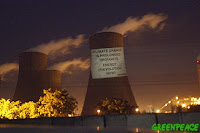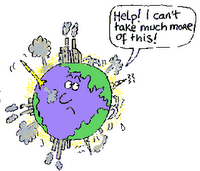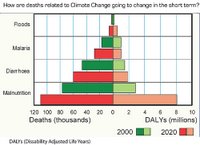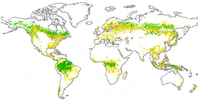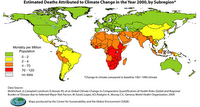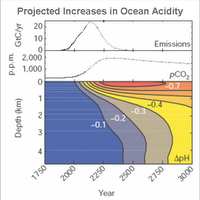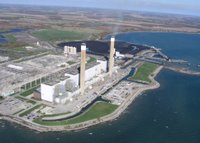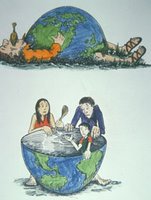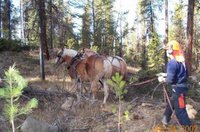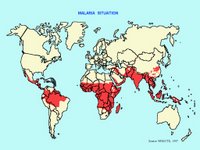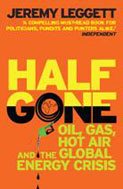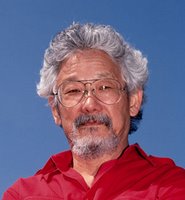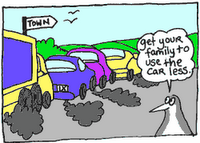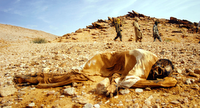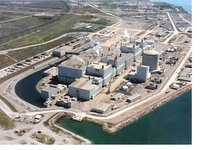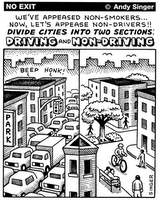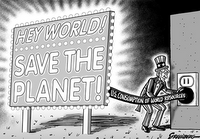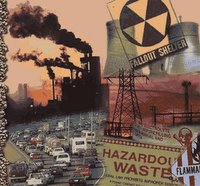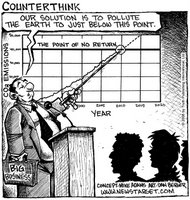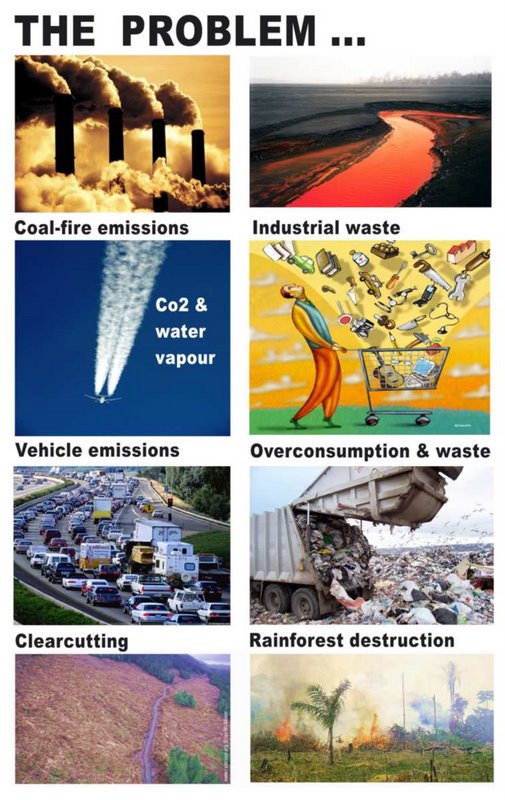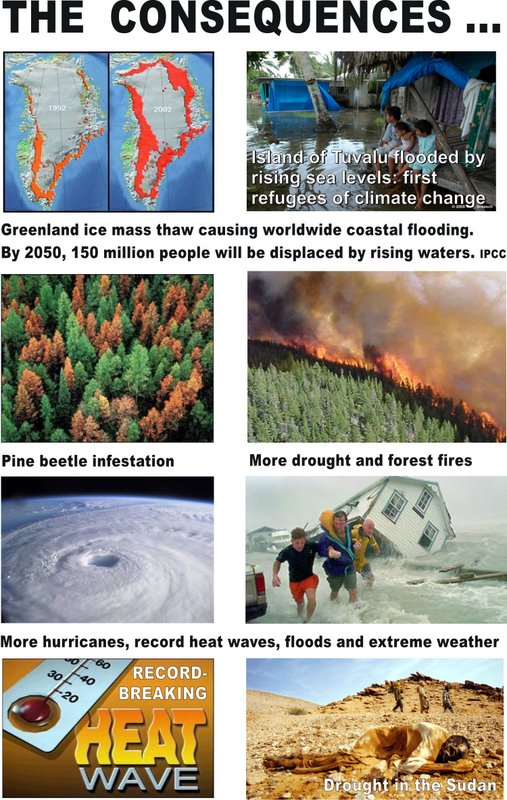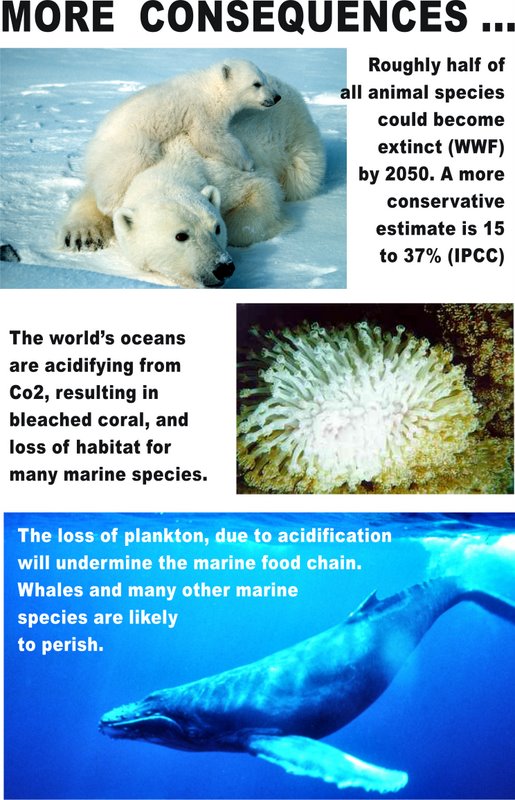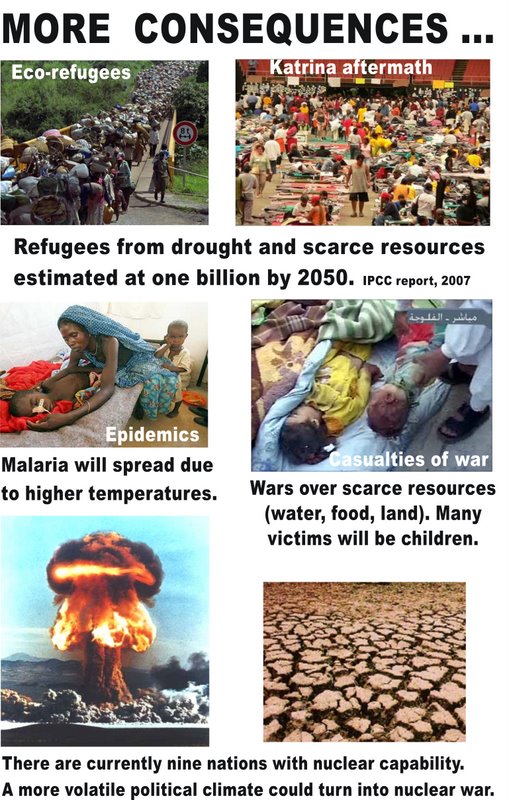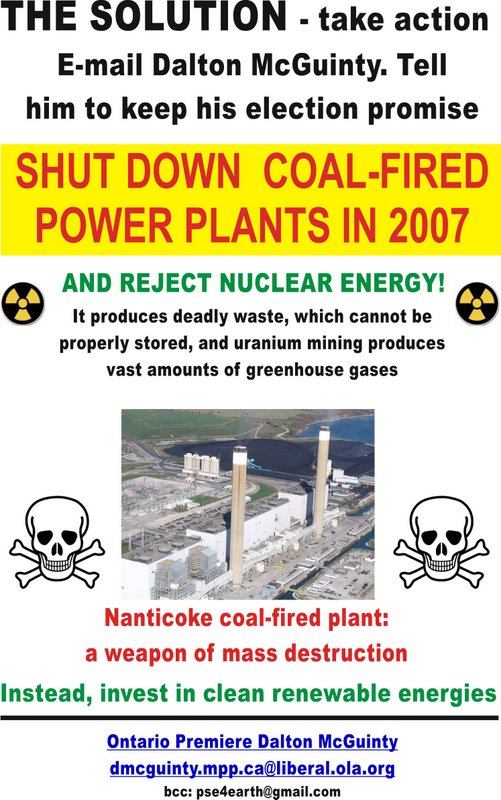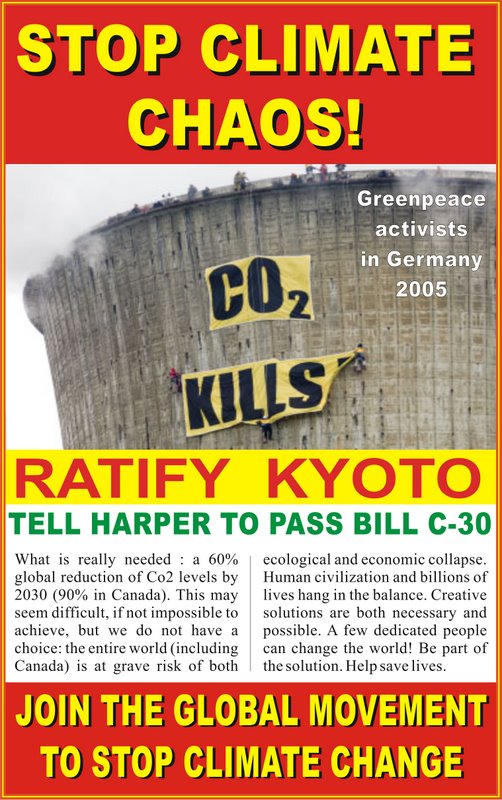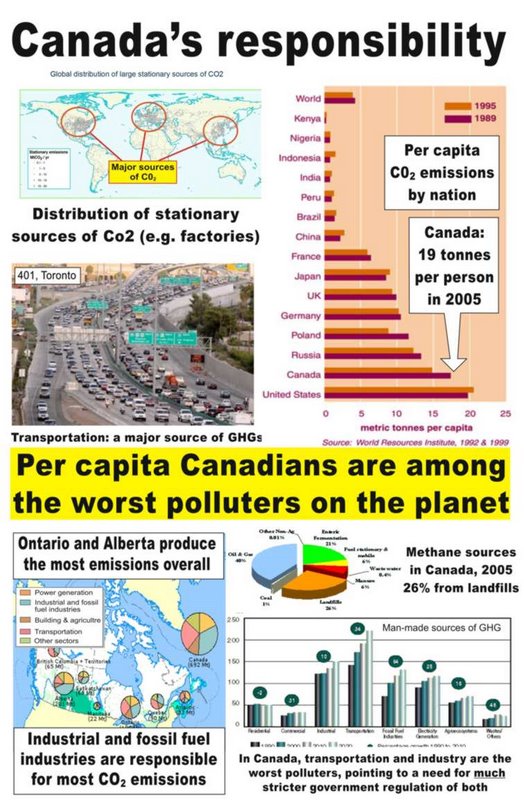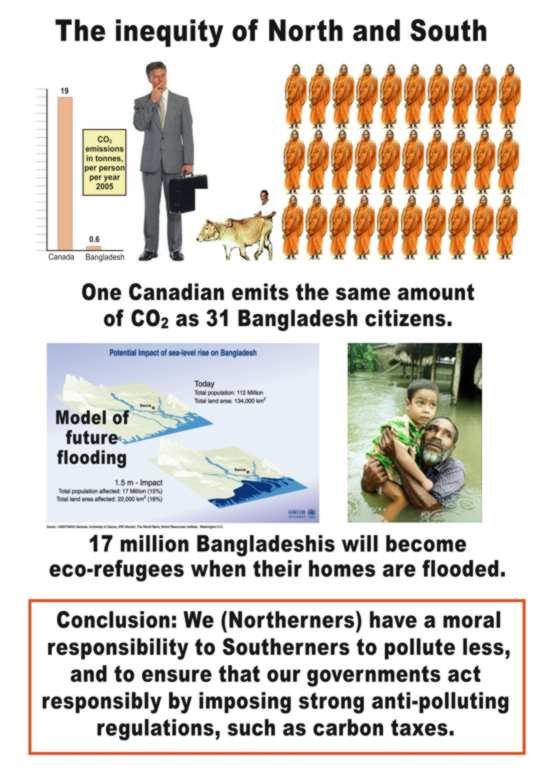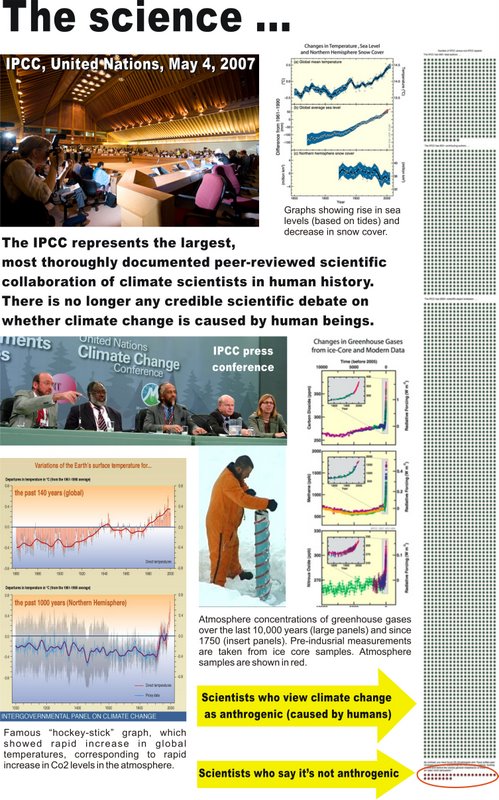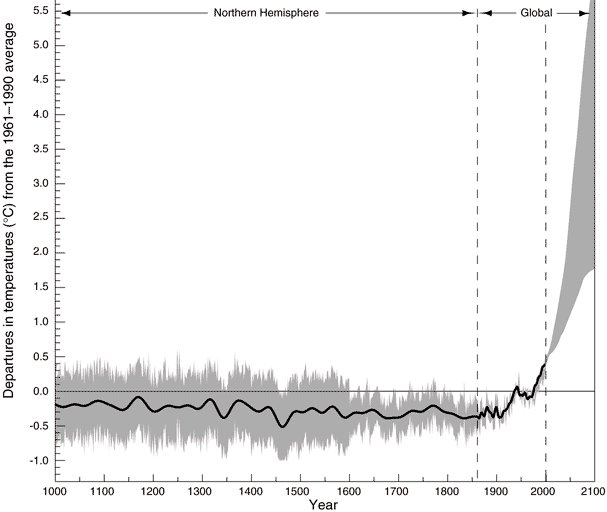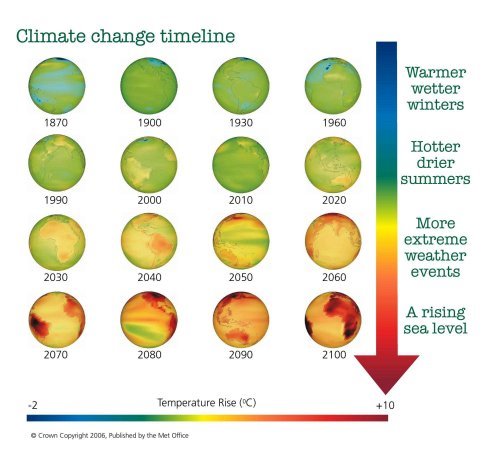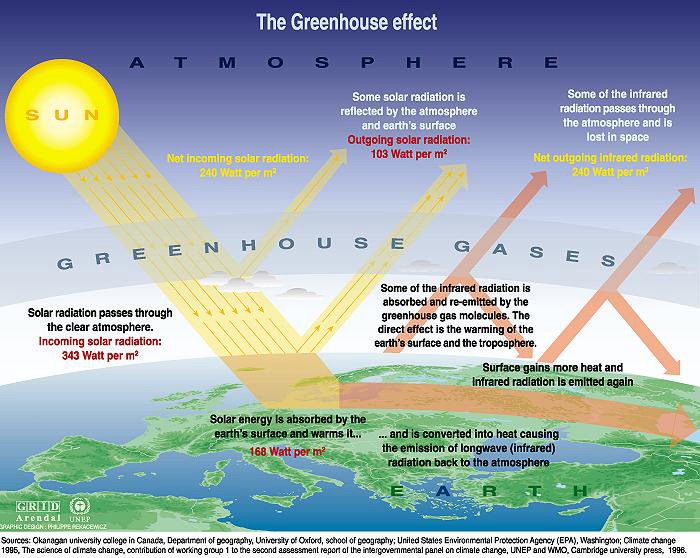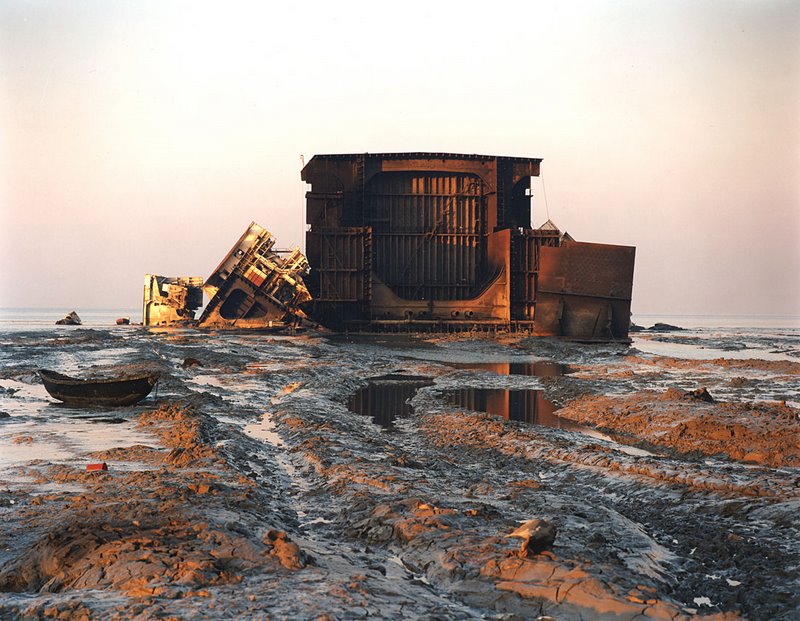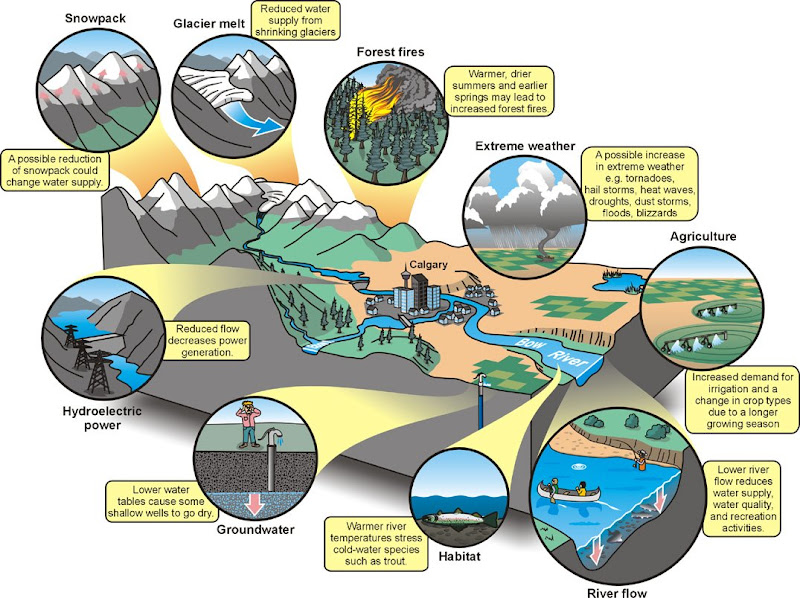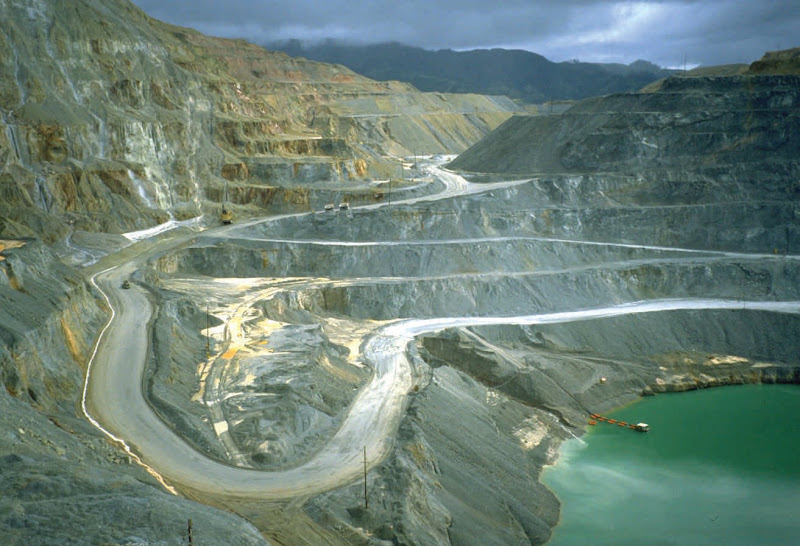Wednesday, December 24, 2008
Join us on Facebook!
A number of groups started by Students Against Climate Change, Toronto Mining Support Group and/or Paul York ...
http://www.facebook.com/groups.php?id=721757650&gv=12
- Includes: Indict Bush, Harper & fossil fuel CEOs for crimes against humanity & nature
- TD's Go Green Challenge is greenwash
- Toronto Mining Support Group
- Students Against Climate Change
- Resistance to gold mining in Latin America
- Good books, films and websites on the environmental and economic crisis
____________________________________________
Events in January ...
Free showing of Out of Balance - Exxon Mobil's Impact on Climate Change, Jan. 9th
http://www.facebook.com/groups.php?id=721757650&gv=12#/event.php?eid=35379749499
Free showing of Sharkwater, Jan. 15th
http://www.facebook.com/groups.php?id=721757650&gv=12#/event.php?eid=46438620751
Free showing of Rio Blanco and talk on community resistance to extraction industries
http://www.facebook.com/groups.php?id=721757650&gv=12#/event.php?eid=47203519448&ref=ts
Benefit concert for horse refuge in Ontario
http://www.facebook.com/groups.php?id=721757650&gv=12#/event.php?eid=48972533135&ref=ts
http://www.facebook.com/groups.php?id=721757650&gv=12
- Includes: Indict Bush, Harper & fossil fuel CEOs for crimes against humanity & nature
- TD's Go Green Challenge is greenwash
- Toronto Mining Support Group
- Students Against Climate Change
- Resistance to gold mining in Latin America
- Good books, films and websites on the environmental and economic crisis
____________________________________________
Events in January ...
Free showing of Out of Balance - Exxon Mobil's Impact on Climate Change, Jan. 9th
http://www.facebook.com/groups.php?id=721757650&gv=12#/event.php?eid=35379749499
Free showing of Sharkwater, Jan. 15th
http://www.facebook.com/groups.php?id=721757650&gv=12#/event.php?eid=46438620751
Free showing of Rio Blanco and talk on community resistance to extraction industries
http://www.facebook.com/groups.php?id=721757650&gv=12#/event.php?eid=47203519448&ref=ts
Benefit concert for horse refuge in Ontario
http://www.facebook.com/groups.php?id=721757650&gv=12#/event.php?eid=48972533135&ref=ts
Update
So much has happened since the last entry it's hard to know where to begin. We started Toronot Mining Support Group, did protests in solidarity with several different indigenous communities fighting open-pit mining, hosted a lecture against nuclear energy with Dr. Edwards, showed numerous films, hosted Bob Lovelace (incredible!), co-organized the student conference on climate change, and much much more. It's impossible to recount it all right now. And there is so much coming up! January is going to be very busy, with numerous films, lectures and climate change and community resistance and solidarity events. We'll keep you posted! - Paul
Saturday, April 5, 2008
Wednesday, April 2, 2008
Prayer for justice
O Great Spirit. O Great Creator, Source of all that is. You breathe and infuse us with life. We are mindful that we are standing on Ground, Sacred Earth here today. Root us, and ground us in Earth, that we may be mindful and respectful of Earth, all the plants and animals, and all our brothers and sisters, especially those in the First Nations. Move us and our governments to deal honourably, and bring respect and humility to conversations with First Nations that there may be Right Relations among us. Use all the efforts and commitments expressed here today to contribute to the outcomes for which we long and pray. Amen.
- delivered by Rev. Ralph Carl Wushke, Eccumenical Chaplain, U of T at rally in support of AAFN, Shabot First Nation, CCAMU and KI First Nation, against mining, on Mining Lobby Day at Queen's Park, March 19, 2008.
- delivered by Rev. Ralph Carl Wushke, Eccumenical Chaplain, U of T at rally in support of AAFN, Shabot First Nation, CCAMU and KI First Nation, against mining, on Mining Lobby Day at Queen's Park, March 19, 2008.
Sunday, March 30, 2008
Hart House activites
We seem to have done a lot at Hart House. We hosted the event with Dr. Harvey on global warming there, did the eco-fair there (photo below), scared away Bjorn Lomborg from speaking there, and now are going to host an inquiry into uranium mining on April 26th, 9 a.m. to 5 p.m. Join us!

Eco-fair at Hart House, sponsored by Toronto Climate Campaign and SACC

Eco-fair at Hart House, sponsored by Toronto Climate Campaign and SACC
Monday, March 17, 2008
Urgent Call to Action!

Monday March 17, 9 am - 4pm:
Flood Michael Bryant's office!
PHONE - EMAIL - WRITE - FAX
Minister of Aboriginal Affairs, Ontario
Starting on Tuesday 18 March, the second phase of contempt charges against First Nations leaders and several non-natives involved in the Robertsville protest will be heard in the Kingston Court House. Meanwhile, a Queen's University Journal article quotes Frontenac Ventures President and CEO as saying as of this date there is no drilling, but it could happen any.
Ardoch Algonquin First Nation and their allies ask all those concerned about First Nations rights and uranium mining to FLOOD Michael Bryant's office this MONDAY, 17 March to demand that the Government of Ontario immediately:
* admit that it was in the wrong to issue permits to Frontenac Ventures for uranium exploration on unceded Algonquin territory without first consulting with First Nations.
* follow Manitoba's example: withdraw the exploration permits that were issued without proper consultation. (The Manitoba government recently suspended drilling on the Minago Nickel Project on Norway House Cree Nation land.)
* disallow uranium exploration and mining in the Ottawa Valley, in keeping with the Algonquin people's proclamation of September 28th,
2007.
* free political prisoner Bob Lovelace and revoke his and Paula Sherman's sentences.
* stop the drilling at the Robertsville site until there is thorough consultation with First Nations.
Please be polite, and remember to request a response to your correspondence otherwise they may not reply.
Contact Info:
Hon. Michael Bryant
803 St. Clair Ave W
Toronto ON M6C 1B9
Tel: 416-656-0943
Fax: 416-656-0875
Email: mbryant.mpp.co@liberal.ola.org
Please CC your emails to: AAFNASupport@sympatico.ca
------------------------------------
For reference:
The Algonquin Proclamation to the Government of Canada that was also delivered to Premier McGuinty's constituency office September 28th, 2007 read:
WHEREAS the Algonquin people were created by the Master of Life in the Valley of the Ottawa River Watershed and can look to no other place on earth to sustain their culture, language and identity and as a People regard the Ottawa Valley to be their homeland;
AND WHEREAS the Algonquin people have a sacred responsibility for the care and preservation of the land, water and all creatures great and small that
abide as their closest relations in the Ottawa Valley;
AND WHEREAS the Algonquin people have peaceably shared the Ottawa Valley with many people who have come to settle among them, offering the newcomers land and resources for their commerce and health, friendship and wisdom for the care of their land, and have compromised their own well being for the sake of peaceful relations;
AND WHEREAS the Crown in right of Ontario, Quebec and Canada has obligations, through the word of King George III in the Royal Proclamation
of 1763, to protect their allies the Algonquins in their homeland, and to protect their homeland from unwanted settlement and development;
AND WHEREAS Uranium exploration and mining currently poses great threat to the health of the land, water, people and fellow creatures of the
Algonquin homeland and the peaceful use and occupation by Algonquins and their neighbours;
The Algonquin people declare that all exploration and mining for Uranium in the Ottawa Valley shall end immediately, September 28th, 2007.

Background documents:
http://www.thewhig.com/ArticleDisplay.aspx?e=928059 (Good article: the real reason Bob Lovelace was arrested)
http://www.ccamu.ca/ (Community Coalition Against Mining Uranium)
http://www.aafna.ca/ (Ardoch Algonquin First Nation)
http://www.shabotisstillhere.com/ (Shabot First Nation)
http://www.newsweb.ca/2007/uranium.html (Indy media report)
http://www.dominionpaper.ca/articles/1414 (Indy media report)
http://ottawa.indymedia.org/en/2008/03/7040.shtml (Indy media report)
http://wiinimkiikaa.wordpress.com/?s=sharbot+lake (Indigenous solidarity report)http://www.greenpeace.org/canada/en/press/press-releases/greenpeace-and-first-nations-t (Greenpeace report)

Graphic representation of all the water in the world in ball, and all the air in the world in a ball. Needless to say, all life on Earth is dependant on these two substances. The implication is that if we pollute them, life on Earth will perish. From the 11th Hour website.
Sunday, March 16, 2008
Uranium and gold mining protest events coming up

Caption: typical Barrick gold mine - this area will be dead for thousands of years and pollute water systems downstream, harming plants, animals and human beings - all so that a few rich men can grow richer. Short of the distinct possibility that they will go to Hell, the only justice is to protest this abomination and resist this evil through solidarity with indigenous peoples the world over.
1. Peaceful protest against uranium mining at Queen's Park, March 19, 12 noon.
2. Film "Uranium" and talk with Marylin Crawford of CCAMU, March 19, 7 p.m.
3. Initial planning meeting for Citizen's Inquiry into Uranium Mining (set for April 26), Friday March 21, lounge, 5th floor of OISE
4. Planning meeting to organize protest against Barrick Gold and Goldcorp AGMS in May, and to discuss strategies and tactics for law reform around mining in Canada - date TBA (please get back to me if you're interested!)
_________________________________
This Wednesday (March 19th, 2008) you are invited to attend two events related to uranium mining, nuclear energy, extraction industries, and social and environmental justice for Sharbot Lake - a protest and a movie/talk at University of Toronto.
Students Against Climate Change is hosting these events because nuclear energy is NOT the way to go towards a sustainable future
Uranium mining is a wasteful destructive process that destroys the land and those who live on it, and nuclear power releases tritium - a radioactive substance - into our water supply and creates waste that cannot be properly disposed of for tens of thousands of years and is used in both nuclear and conventional weapons.
Native land claim struggles against mining, in Ontario and around the world, are consistent with the fight for climate justice and a sustainable future for all people.
1. Peaceful protest of Queen's Park's "Mining Lobby Day." Yes, QP has a day devoted to attracting the mining coroporations to plunder the natural resources of Ontario, at the expense of the natural environment, overriding native land claims, and creation of toxic mine tailings.
12 noon at QP. Meet at 11:30 in front of the Munk Centre, north side of Harbord, between St. George and University (the Munk Centre is funded by Peter Munk of Barrick Gold - see http://protestbarrick.net/).

Caption: solar power, the obvious alternative to nuclear. The fact that the entire world is not powered by solar and wind reveals that there must be something terribly wrong with human beings (or at least the sort who are actively destroying the world). Are we, as Freud said, in the grip of a Thanatos, a death-urge? Or as E. O. Wilson asks "is humanity suicidal?"
_____________________
2. Movie and lecture same day (Wed. March 19th), 7 p.m. at McLennan Physical Labs (MP room 118), 60 St. George St. U of T. Movie is either "Uranium" (NFB) (http://www.nfb.ca/collection/films/fiche/?id=18301)and informal talk with Marylin Crawford of the Community Coalition Against Mining Uranium (see http://www.ccamu.ca/). Co-hosted by Melodie Carew of "Uranium Is Not Worth It."
If you are interested in Sharbot Lake or social or environmental justice in Ontario, this is a good event to attend. Contact Paul York for info:
Background:
If you use electricity, drink water and live in Ontario, you are already involved in uranium mining indirectly: the Ontario government is supporting mining, supposedly for our energy needs, even though Ontario has enough potential wind power to supply 100% of our needs.
Nuclear energy leaves toxic waste which lasts 25,000 years and pollutes our drinking water with a radioactive substance, tritium. Ontario uranium also ends up in weapons systems, both conventional and nuclear. Uranium and other types of mining also destroy boreal forests and local ecosystems and they are opposed by several First Nations groups.
Issues on the table for both protest and film / talk include:
* Reforming the draconian Mining Act (http://www.miningwatch.ca/index.php?/Ontario/Ontario_Law__Regs);
* Solidarity with First Nations near Sharbot Lake (Shabot and Alquonquins) and support for Chief Bob Lovelace (see http://www.thewhig.com/ArticleDisplay.aspx?e=928059);
* Why nuclear energy and uranium is not needed in Ontario (see http://renewableisdoable.com/);
* Necessary reforms to Canada's laws on mining in solidarity with peoples in developing nations who are victims of Barrick Gold and other Canadian mining corporations (see http://www.miningwatch.ca/index.php?/Frontenac/AAFN_rls_080219)
* The fact that we should not even have a "mining lobby" day in Ontario!
Join Students Against Climate Change (http://studentsagainstclimatechange.blogspot.com/) and other supportive groups (Forest Ethics, Coalition Against Israeli Apartheid, Student Christian Movement) for a press conference on the steps of QP; with a representative from CCAMU (one of the groups opposing the Sharbot Lake urnanium mine plans).
To get involved or for more information contact Paul York at pyork_2002@hotmail.com for info.
________________________
3. Initial planning meeting for Citizen's Inquiry into Uranium Mining (set for April 26), Friday March 21, lounge, 5th floor of OISE
Our group is working with CCAMU to help coordinate the Toronto Inquiry. Other inquires are set for other Ontario cities. See http://www.uraniumcitizensinquiry.com/
Among the topics to be addressed:
* Ontario's complicity with uranium mining
* Native land claims and mining in Ontario
* Nuclear energy versus renewable energy and conservation
_______________________
4. Planning meeting to organize protest against Barrick Gold and Goldcorp AGMS in May, and to discuss strategies and tactics for law reform around mining in Canada - date TBA.
* Barrick Gold AGM - May 6th
* Goldcorp AGM - May 20th
The tactic is simple: stage a peaceful protest outside while people go inside to raise objections, and invite the media. See this report on the last Barrick AGM (http://protestbarrick.net/article.php?id=82) and this report on our disruption of their meeting with investors over the issue of "corporate social responsibility" (http://protestbarrick.net/article.php?id=198).
There is a lot on this site and on the Mining Watch site (http://www.miningwatch.ca/) and Rights Actions site (http://www.rightsaction.org/) and The Dominion (http://www.dominionpaper.ca/search/node/mining).
The basic thing to know, beyond the fact that industrial mining is evil and violates human rights, is that the Canadian government is complicit with this and has not adequately implemented law reform to require that Canadian companies not violate human rights and desecrate the environment.
A national 'Roundtable' on this issue was the Halifax Initative. The reforms suggested there were never put in place: http://www.halifaxinitiative.org/index.php/CNCA_Roundtables
As a consequence, Barrick's lawyers held the meeting on Corporate Social Responsibility (CSR) to ward off allegations that "Canada's reputation abroad" (the name of the meeting) is being destroyed by mining.
Of course Harper has already ensured that Canada's reputation is tarnished by its withdrawal from Kyoto and unqualified support for mining operations abroad.
What we need now are mandatory regulations -- principally to ensure the right of international parties to hold Canadian corporations accountable for crimes against humanity and environmental destruction.
If lobbying for law reform (which is doable) and supporting or participating in a fun protest against Barrick and Goldcorp interests you, please contact Paul York at
Monday, March 3, 2008
Free Bob Lovelace!

Reprinted from Kingston Whig Standard
Why Bob Lovelace is in jail; A message is being sent to mining companies: Ontario is open for business
I know Bob Lovelace as a soft-spoken and self-reliant neighbour, devoted father and dedicated Queen's University teacher admired by his students and colleagues. He's the kind of guy who constructs a log house in the woods north of Kingston with his own skill and sweat; builds a box planter at the local swimming spot and keeps it stocked with marigolds and petunias; and provides venison for a potluck supper. He's as innately confrontational as a panda bear.
Yet much of the public knows Bob Lovelace as a nominally militant aboriginal prisoner now serving a six-month jail sentence and facing cumulative personal fines of nearly $400,000 for contempt of court. His transgression? Refusing to obey a judicial order not to continue his peaceful blockade at a proposed uranium mine site on lands Algonquin First Nations have never ceded title to under any prior treaty or land claim settlement.
Yet, as even the mine promoter's lawyer has admitted in court hearings, there is a vanishingly small chance a uranium mine will ever get built at the headwaters of the Mississippi River northwest of Sharbot Lake. Compared to other deposits in Saskatchewan, Australia, South Africa and Asia, the ore is laughably low-grade, and the cost to mine fatally high.
So how did it come to this?
In effect, Bob is in jail because he has quietly, but implacably, declined to concede that a provincial court has the ultimate authority to decide what happens on lands his Algonquin forebears have used without ecological abuse for thousands of years.
A key point is that these are not private lands in dispute. The collision has occurred because. for more than a century. Ontario governments have blithely assumed that all provincial lands are solely entrusted to it, and are thus subject to mining laws that allow any prospector or com-pany, from anywhere, to stake out land and claim any mineral wealth below. Without asking anyone else's permission.
In this case, the provincial Ministry of Natural Resources handed out the permits to a fledgling outfit called Frontenac Ventures, and the com-pany maintains that it can drill for uranium with the law on its side. Without First Nation approval.
On this, the company, a provincial court and the cabinet of Dalton McGuinty tacitly agree. That's why my neighbour is in prison as a kind of conscientious objector, his impoverished First Nation is facing additional cumulative fines of nearly $400,000, and Frontenac Ventures has the sanction to drill for uranium deposits that will never prove profitable.
This makes no sense at all - unless the real issue here is far larger and more deceptive than a puny, potentially speculative mine play that may capitalize on gullible or greedy investors fixated on the spiking world price of uranium, and the venerable flim-flam tactic of selling them sizzle instead of steak.
My bet is that the Ontario government knows - just as well as Canada's major uranium com-panies know - that eastern Ontario is essentially bereft of profitable deposits. Compared to the mammoth, rich, easy-to mine uranium reserves in northern Saskatchewan, which are known as "elephants" in industry parlance, those from Sharbot Lake to Bancroft to Elliot Lake are like scattered mice.
Perversely, because these Ontario deposits would yield far few ounces of uranium per tonne of ore mined, the volume of radioactively contaminated waste rock and other lethal pollutants would be far greater. So the public pollution risk would be high, and the financial reward small to non-existent for a private company.
The Ontario government is not blind to these facts. Or to the past legacy of uranium mining at Elliot Lake, which left more than 100 million tonnes of dangerous waste tailings for posterity, and desecrated the downstream Serpent River watershed. So what is really going on?

Caption: Chief Paula Sherma, Ardoch Algonquin at protest to free Bob Lovelace
I suspect that the Ontario government is determined to assure the bigger, richer, more experienced mining interests, and international investors, that Ontario is a place where they can come and make serious money by mining not uranium but diamonds, gold, platinum, nickel, copper and zinc - with minimal hindrance. And because most of that potential mineral wealth is in northern Ontario, where most of the population is aboriginal, the right signals need to be sent. To mining companies, the Dalton McGuinty message is: Ontario is wide open for business. To First Nations it is: get on board, or out of the way - or go to jail.
As evidence of this, consider that the lawyer for Frontenac Ventures also represents a different mining company that wants to develop a platinum prospect near Big Trout Lake in northwest Ontario, despite determined First Nation opposition. There, aboriginal leaders are also facing, like Bob Lovelace, potential imprisonment and crippling fines. The lawyer representing Bob Lovelace also acts for the Big Trout community. So the confrontation is identical, except the mineral at the heart of the showdown is different.
There are hints that the platinum mine promoter, like Frontenac Ventures, might be willing to withdraw from that mine play if the Ontario government effectively pays it to go away. If this occurs, then it will be Ontario taxpayers who end up being mined for millions. not uranium or platinum deposits.
This would be bad for everyone except the victorious speculators, and the lawyers collecting Bay Street fees for their artful advice. It would prompt other speculators to try the same trick. And it would leave Bob Lovelace with a contempt of court conviction, facing a lifetime sentence of paying court-imposed fines, and his family wrenched by trauma. (To its great credit, Queen's University has pledged to restore his teaching post when he is released.)
In the end, I believe Bob Lovelace will be vindicated because, largely forgotten in this whole sinister drama, is the likelihood that he has the highest law of the land on his side. The Supreme Court of Canada has ruled, after a century of plaintive petitions from aboriginal leaders from coast to coast to coast, that they collectively hold certain fundamental rights to land and resources, to First Nation cultural preservation, and to be consulted before those may be put at risk.
Uranium ore poses just such a risk. In spades. Once unearthed, it constantly emits invisible but deadly radioactive particles that respect nothing. These can bio-accumulate indiscriminately in countless plants and animals, effectively gaining lethality over time because nothing in nature can destroy them. Many of these radioactive particles mimic beneficial body chemicals like calcium or iodine, are especially perilous to children and women of child-bearing age, and can impair the human gene pool.
And finally, because the only two uses of uranium are for nuclear reactors that covert it into other forms of even more lethal, long-lived radioactive wastes, or for nuclear weapons, a strong case can be made that all uranium, everywhere, is too dangerous to be mined by anyone. Period. And that it is any sensible citizen's civic duty to prevent such future harm.
If it goes that far, I suspect that some day the Supreme Court of Canada will rule that the rights of the Algonquins were violated when the Ontario government issued uranium exploration permits on unceded lands without authentic consultation and consent.
Meanwhile, it is tragic that while my thoughtful neighbour remains in a Lindsay jail an eternity away from his kids, none of these biological, human health and legal facts seem to be troubling the mind of our premier or his minister of aboriginal affairs. Judging by their deafening silence, for them Bob Lovelace apparently does not exist.
- Paul McKay is a former Whig-Standard reporter and the author of a biography of business magnate Stephen Roman and the Elliot Lake uranium industry.
Article ID# 928059


A more well-known political prisoner of another corrupt state; the causes of their imprisonment is the same: to put money and power ahead of people and the environment
Background ...
Robert Lovelace becomes a political prisoner
On 15 February 2008, former chief Robert Lovelace began serving 6 months in jail for refusing to comply with a court injunction, while following Algonquin law to protect Creation. The charge stems from his participation in the Ardoch Alliance protest against uranium exploration on unceded Algonquin land near Sharbot Lake, Ontario.
The judge in the case handed down this harsh sentence along with heavy fines, saying "compliance with the orders of this court are not optional". The underlying issue, however, is that the government of Ontario did not consult with the First Nation community before issuing exploration licenses in Algonquin territory.
The lawyer for the Ardoch Algonquin First Nation, Chris Reid, intends to appeal the sentence but at this date, Robert is behind bars at the Central East Correctional Centre in Lindsay, Ontario.
Support
Protest Rally, Saturday 23 February, 2008
Over 400 people attended the rally and march in Napanee (location of the Quinte Detention Centre, Bob's original site of incarceration). There were speeches and letters of support and inspiration by various First Nations leaders, NGOs, lawyers and political representatives followed by a short march to the Detention Centre itself.
Direct action
Call Premier McGuinty every day and ask him:
Have you freed Bob Lovelace?
Have you removed unceded Algonquin land from uranium exploration and mining?
Have meaningful negotiations with the Algonquin First Nations started?
Have you begun a review of Ontario's Mining Act?
" No? I'll call back tomorrow to ask you again...."
Ottawa constituency office: 613-736-9573
Queen's Park: 416- 325-1941
or email your questions to:
dmcguinty.mpp.co@liberal.ola.org
Contacting Bob
Letters of support for Robert Lovelace can be mailed to:
Central East Correctional Centre
541 Hwy 36
Lindsay, Ontario
K9V 4S6
Providing financial support
Many people have asked how they can help Robert and his family in this difficult and stressful situation.
Robert has been fined $25,000, plus $2,000 per day that he is not in compliance with the order. Co-chief Paula Sherman has been fined $15,000. The Ardoch Algonquin First Nation community has been fined $10,000. You can make donations to be held in trust by sending a cheque made out to
"C. Reid, in trust for the Ardoch Algonquin First Nation"
The cheque should be mailed to:
Christopher M. Reid
Barrister & Solicitor
154 Monarch Park Ave.
Toronto, ON M4J 4R6
Tel: (416)446-9928
Fax: (416)466-1852
Saturday, March 1, 2008
Getting off the grid!
This family, in Toronto, shows that it can be done. They've lived off-the-grid house for 10 years. While the initial building cost was 12 per cent more than normal, the savings on utilities since then have paid for the initial costs, and now whatever they save from hereon represent additional savings. Additionally, they have almost no environmental impact. http://www.thestar.com/article/308450


Principles of U.S. campus climate change movement
Great video on climate change science by American student:
http://www.youtube.com/watch?v=Zpu7IZcdzXE
Students Against Climate Change endorses the following principles from http://climatechallenge.org/ Although written by and for Americans, every princple is entirely applicable to Canada. We call on our leaders to follow these guiding principles as they make decisions that will determine our future: A just climate policy must be scientifically based – The US must enact mandatory caps on greenhouse gas pollution that ensures the peak and decline of global carbon emissions before 2015 towards a minimum of 80% emissions reductions below 1990 levels before mid-century in order to avoid a climate catastrophe. An ambitious plan to revolutionize our energy, agriculture and transportation systems with measurable targets is essential. We must immediately shift all federal funding and subsidies away from dirty energy towards research and implementation of clean technologies. A just climate and energy policy cannot rely on any forms of dirty energy such as so-called “clean coal” or nuclear power. We must recognize the disproportionate impact of global warming and dirty energy on low-income, people of color and indigenous communities and ensure a just transition that improves and supports their physical, social and economic health.

If the $46 billion that Ontario plans to spend on nuclear energy were spent on wind turbines and conservation efforts, this province could get rid of coal power, nuclear power, a lot of air pollution (and health problems and costs associated with it), as well as the damaging psychological effects caused by endless economic growth through unsustainable consumption of unecessary goods. All the solutions exist. Why are they being adopted? We clearly need more grassroots organizing, especially on campuses. We must prioritize major reductions in total energy use. Cost-effective energy conservation and efficiency measures can cut energy demand by more than half. All of our remaining energy needs, including transportation, can be met by zero-emission renewable energy sources such as wind and solar. No combination of "alternative" fuels (from corn, coal or otherwise) can replace our oil addiction. Highly efficient, zero-emission electric cars and plug-in hybrids can be fueled up with wind-powered electricity more cheaply and conveniently than we can fill up with oil, biofuels or hydrogen. The development of a just climate and energy policy must include all stakeholders, not just business, government, and large environmental groups. Because every American, no matter their age or economic status, will be affected by climate change, it is crucial that a broad and diverse group, including communities that are disproportionately impacted by the energy industry, have seats at the table as this policy is crafted. As the generation that will inherit the impact of the decisions we make today, young people must be given a particularly important seat at the table. A sustainable future must inlcude frogs and amphibians. We are morally culpable if we continue to allow them to die. Invader species and habitat loss are the leading causes.
A sustainable future must inlcude frogs and amphibians. We are morally culpable if we continue to allow them to die. Invader species and habitat loss are the leading causes.
http://www.youtube.com/watch?v=Zpu7IZcdzXE
Students Against Climate Change endorses the following principles from http://climatechallenge.org/ Although written by and for Americans, every princple is entirely applicable to Canada. We call on our leaders to follow these guiding principles as they make decisions that will determine our future: A just climate policy must be scientifically based – The US must enact mandatory caps on greenhouse gas pollution that ensures the peak and decline of global carbon emissions before 2015 towards a minimum of 80% emissions reductions below 1990 levels before mid-century in order to avoid a climate catastrophe. An ambitious plan to revolutionize our energy, agriculture and transportation systems with measurable targets is essential. We must immediately shift all federal funding and subsidies away from dirty energy towards research and implementation of clean technologies. A just climate and energy policy cannot rely on any forms of dirty energy such as so-called “clean coal” or nuclear power. We must recognize the disproportionate impact of global warming and dirty energy on low-income, people of color and indigenous communities and ensure a just transition that improves and supports their physical, social and economic health.

If the $46 billion that Ontario plans to spend on nuclear energy were spent on wind turbines and conservation efforts, this province could get rid of coal power, nuclear power, a lot of air pollution (and health problems and costs associated with it), as well as the damaging psychological effects caused by endless economic growth through unsustainable consumption of unecessary goods. All the solutions exist. Why are they being adopted? We clearly need more grassroots organizing, especially on campuses. We must prioritize major reductions in total energy use. Cost-effective energy conservation and efficiency measures can cut energy demand by more than half. All of our remaining energy needs, including transportation, can be met by zero-emission renewable energy sources such as wind and solar. No combination of "alternative" fuels (from corn, coal or otherwise) can replace our oil addiction. Highly efficient, zero-emission electric cars and plug-in hybrids can be fueled up with wind-powered electricity more cheaply and conveniently than we can fill up with oil, biofuels or hydrogen. The development of a just climate and energy policy must include all stakeholders, not just business, government, and large environmental groups. Because every American, no matter their age or economic status, will be affected by climate change, it is crucial that a broad and diverse group, including communities that are disproportionately impacted by the energy industry, have seats at the table as this policy is crafted. As the generation that will inherit the impact of the decisions we make today, young people must be given a particularly important seat at the table.
 A sustainable future must inlcude frogs and amphibians. We are morally culpable if we continue to allow them to die. Invader species and habitat loss are the leading causes.
A sustainable future must inlcude frogs and amphibians. We are morally culpable if we continue to allow them to die. Invader species and habitat loss are the leading causes.
Reasons to hope
The Hour Before the Dawn
by David W. Orr
Hope, says author David W. Orr, is not the same as wishful thinking. Hope recognizes hard realities, like the difficulty of inventing a new energy future, but chooses to act anyway. Here are 10 reasons to be hopeful
Recently I participated in a conference to assess the “state of the world.” I was sixth on a list of speakers, each of whom presented well-documented and plausible bad news ranging from global famine to abrupt climate change to worldwide terrorism or all of the above.
Gloom settled on the assembled like a dark cloud. I had intended to offer more of the same, but decided enough was enough. On the spur of the moment I began to list the legitimate reasons we have for optimism. I offer 10.
One. For 30 years or longer we environmentalists have been right on the big issues. Not always, but mostly. Rachel Carson was right about the effects of DDT and similar chemicals in 1962. Paul and Anne Ehrlich were right in 1968 about the possibilities for famine and ecological collapse; presently 1 billion people are malnourished, and whole ecologies have collapsed in Haiti, Ethiopia, China, and elsewhere.

The authors of the much maligned Limits to Growth were mostly right in 1972; there are limits to what we can do, beginning with overloading the ability of the Earth to absorb our wastes. E.F. Schumacher was right about the need for “appropriately scaled” technology. Amory Lovins was right in 1976 about the potential for greater energy efficiency and renewable energy sources, and we have come part way down that road against the determined opposition of the fossil-fuel industries and electric utilities.
In different ways, Randall Arendt, Jane Jacobs, Paul Hawken, Vaclav Havel, Jim Hightower, Wes Jackson, Bill McDonough, Ian McHarg, Vandana Shiva, John and Nancy Todd, Paul Wellstone, E.O. Wilson, and many, many others are right about better possibilities. It is not possible to organize the public business for long around hatred, fear, and resentment. There is some steady gravitational pull in the universe toward higher things.
Two. Public opinion polls show determined majorities over three decades favor clean air, clean water, open spaces, preservation of species, climate stability, less traffic congestion, and solar energy. There is no mandate to repeal the gains of the 20th century, although, as extremists of all kinds know, it is always possible to confuse, muddy the water and distort reality—but only for so long.
Three. There is the growing power of world opinion. The United States is now regarded by many around the world as a rogue nation engaging in state terrorism, but there are forces that will counter our arrogance and overreach. Ecological enlightenment, for one, has now grown to a global force multiplied by the Internet. How else but the Internet to explain the millions who protested the onset of war in Iraq? No matter the issue, there is a surge in public opinion in favor of a decent, peaceful, and sustainable world. I do not think this tidal wave can be stopped by any nation or any amount of military power.
Four. An economy organized around the convenience of the top 5 percent cannot be maintained for long. Tax cuts for the hugely wealthy, rising deficits, and militarization of the economy is a recipe for disaster. We do not have to rob the world and steal from our children to live well. There are better ideas for a truly prosperous economy waiting in the wings. By a similar logic, the organization of the global economy by the International Monetary Fund, World Bank, and the World Trade Organization is too closed, corrupt, destructive, and shortsighted to persevere. What we don't know is how it will end, whether in uprisings, collapse, reform or by some combination of these.
Five. The facts are on our side. The extremists now in power believe they can, rather like Stalin, match science to their personal predilections. It did not work for Stalin, and it will work no better for them. It is a fact that we are changing the climate and that this may lead to disaster. It is a fact that we are driving thousands of species to extinction, unraveling God's creation. It is a fact that we are losing soil faster than it can be regenerated and thus jeopardizing food security. It is a fact that toxic pollution is now global and undermines both human and ecological health. It is a fact that all oceans and fisheries are in peril and that forests roughly the size of Scotland disappear each year. And the fact is that a third of humankind live just at or below the point of decency. These facts are all well-known and well-documented, as are the technologies and policies that lead in better directions.
Six. Our technology is better than theirs. They have chosen to run the flag up the pole of nuclear energy, more fossil-fuel power plants, oil wells, coal mines, tax breaks for Humvees, to say nothing of smart bombs and Star Wars technology. They cannot do such things for long without bringing about economic ruin, endless wars, more terror, political turmoil, isolation, and finally, ecological collapse.
Meantime, there is a revolution underway built around the kinds of technology that power space-shuttles, which are being applied to offices, factories, houses, and cars. It is a revolution that will take us toward a distributed energy system based on efficiency and progress in photovoltaics, fuel cells, wind power, and micro turbines. It can be slowed by shortsightedness driven by greed, but it cannot be stopped.
Seven. The course we are now on runs counter to our history and to our best traditions. At our best we are a people defined by documents such as the Declaration of Independence, the Constitution, and the Gettysburg Address. We do not have to be a rogue nation given to preemptive wars and assassinations. The fact that the historical record diverges so sharply in recent decades from our higher values says much about the role of secrecy in our national life, the profitability of what President Eisenhower deemed a “military-industrial complex,” and the cynical manipulation of patriotism.
Eight. The world is more complicated than the neocons and the new imperialists would have it. Women are mobilizing. The Internet is connecting a global citizenry. Information is more available to those wishing to find it. There are more wild cards than ever before, which is to say the world cannot be controlled from the center, and no amount of military power can change that fact. Imperialism is a fool's errand that is no longer possible in what Jonathan Schell has called “the unconquerable world.”
Nine. There is a global spiritual revolution underway the likes of which we've not seen before. People across the major faith traditions are organizing, talking, singing, chanting, and praying. There is power being unleashed and, despite differences, there is common ground around an agenda of peace, non-violence, fairness, protection of communities, restoration of degraded places, ecological sustainability, an extended view of human rights as well as the rights of species and nature, and the rights of our children and those yet to live on Earth.
Said differently, it is not possible for long to organize our affairs around greed, illusion, and ill will. We are called to higher things. And in silence one can hear the birth pains of a new order of things—a new enlightenment.
Ten. We have reason to think that God is on our side. Why? God, who apparently has a sense of humor, reportedly recalled for a time Rush Limbaugh's hearing, a seldom-used faculty. And God will take back all unused faculties, among them humor, wisdom, creativity, foresight, and charity. These faculties are the ones we most need to take us to a different world—not utopia, but a far better world than that now in prospect. The race has never been just to the swift, nor the battle to the merely strong (Ecclesiastes, 9:11). The better angels of our nature will prevail, and that is solid ground for hope.
David W. Orr is professor of environmental science and politics at Oberlin College and author of The Last Refuge, copyright © 2004 by the author. Reproduced by permission of Island Press, Washington, D.C. www.islandpress.org
by David W. Orr
Hope, says author David W. Orr, is not the same as wishful thinking. Hope recognizes hard realities, like the difficulty of inventing a new energy future, but chooses to act anyway. Here are 10 reasons to be hopeful
Recently I participated in a conference to assess the “state of the world.” I was sixth on a list of speakers, each of whom presented well-documented and plausible bad news ranging from global famine to abrupt climate change to worldwide terrorism or all of the above.
Gloom settled on the assembled like a dark cloud. I had intended to offer more of the same, but decided enough was enough. On the spur of the moment I began to list the legitimate reasons we have for optimism. I offer 10.
One. For 30 years or longer we environmentalists have been right on the big issues. Not always, but mostly. Rachel Carson was right about the effects of DDT and similar chemicals in 1962. Paul and Anne Ehrlich were right in 1968 about the possibilities for famine and ecological collapse; presently 1 billion people are malnourished, and whole ecologies have collapsed in Haiti, Ethiopia, China, and elsewhere.

The authors of the much maligned Limits to Growth were mostly right in 1972; there are limits to what we can do, beginning with overloading the ability of the Earth to absorb our wastes. E.F. Schumacher was right about the need for “appropriately scaled” technology. Amory Lovins was right in 1976 about the potential for greater energy efficiency and renewable energy sources, and we have come part way down that road against the determined opposition of the fossil-fuel industries and electric utilities.
In different ways, Randall Arendt, Jane Jacobs, Paul Hawken, Vaclav Havel, Jim Hightower, Wes Jackson, Bill McDonough, Ian McHarg, Vandana Shiva, John and Nancy Todd, Paul Wellstone, E.O. Wilson, and many, many others are right about better possibilities. It is not possible to organize the public business for long around hatred, fear, and resentment. There is some steady gravitational pull in the universe toward higher things.
Two. Public opinion polls show determined majorities over three decades favor clean air, clean water, open spaces, preservation of species, climate stability, less traffic congestion, and solar energy. There is no mandate to repeal the gains of the 20th century, although, as extremists of all kinds know, it is always possible to confuse, muddy the water and distort reality—but only for so long.
Three. There is the growing power of world opinion. The United States is now regarded by many around the world as a rogue nation engaging in state terrorism, but there are forces that will counter our arrogance and overreach. Ecological enlightenment, for one, has now grown to a global force multiplied by the Internet. How else but the Internet to explain the millions who protested the onset of war in Iraq? No matter the issue, there is a surge in public opinion in favor of a decent, peaceful, and sustainable world. I do not think this tidal wave can be stopped by any nation or any amount of military power.
Four. An economy organized around the convenience of the top 5 percent cannot be maintained for long. Tax cuts for the hugely wealthy, rising deficits, and militarization of the economy is a recipe for disaster. We do not have to rob the world and steal from our children to live well. There are better ideas for a truly prosperous economy waiting in the wings. By a similar logic, the organization of the global economy by the International Monetary Fund, World Bank, and the World Trade Organization is too closed, corrupt, destructive, and shortsighted to persevere. What we don't know is how it will end, whether in uprisings, collapse, reform or by some combination of these.
Five. The facts are on our side. The extremists now in power believe they can, rather like Stalin, match science to their personal predilections. It did not work for Stalin, and it will work no better for them. It is a fact that we are changing the climate and that this may lead to disaster. It is a fact that we are driving thousands of species to extinction, unraveling God's creation. It is a fact that we are losing soil faster than it can be regenerated and thus jeopardizing food security. It is a fact that toxic pollution is now global and undermines both human and ecological health. It is a fact that all oceans and fisheries are in peril and that forests roughly the size of Scotland disappear each year. And the fact is that a third of humankind live just at or below the point of decency. These facts are all well-known and well-documented, as are the technologies and policies that lead in better directions.
Six. Our technology is better than theirs. They have chosen to run the flag up the pole of nuclear energy, more fossil-fuel power plants, oil wells, coal mines, tax breaks for Humvees, to say nothing of smart bombs and Star Wars technology. They cannot do such things for long without bringing about economic ruin, endless wars, more terror, political turmoil, isolation, and finally, ecological collapse.
Meantime, there is a revolution underway built around the kinds of technology that power space-shuttles, which are being applied to offices, factories, houses, and cars. It is a revolution that will take us toward a distributed energy system based on efficiency and progress in photovoltaics, fuel cells, wind power, and micro turbines. It can be slowed by shortsightedness driven by greed, but it cannot be stopped.
Seven. The course we are now on runs counter to our history and to our best traditions. At our best we are a people defined by documents such as the Declaration of Independence, the Constitution, and the Gettysburg Address. We do not have to be a rogue nation given to preemptive wars and assassinations. The fact that the historical record diverges so sharply in recent decades from our higher values says much about the role of secrecy in our national life, the profitability of what President Eisenhower deemed a “military-industrial complex,” and the cynical manipulation of patriotism.
Eight. The world is more complicated than the neocons and the new imperialists would have it. Women are mobilizing. The Internet is connecting a global citizenry. Information is more available to those wishing to find it. There are more wild cards than ever before, which is to say the world cannot be controlled from the center, and no amount of military power can change that fact. Imperialism is a fool's errand that is no longer possible in what Jonathan Schell has called “the unconquerable world.”
Nine. There is a global spiritual revolution underway the likes of which we've not seen before. People across the major faith traditions are organizing, talking, singing, chanting, and praying. There is power being unleashed and, despite differences, there is common ground around an agenda of peace, non-violence, fairness, protection of communities, restoration of degraded places, ecological sustainability, an extended view of human rights as well as the rights of species and nature, and the rights of our children and those yet to live on Earth.
Said differently, it is not possible for long to organize our affairs around greed, illusion, and ill will. We are called to higher things. And in silence one can hear the birth pains of a new order of things—a new enlightenment.
Ten. We have reason to think that God is on our side. Why? God, who apparently has a sense of humor, reportedly recalled for a time Rush Limbaugh's hearing, a seldom-used faculty. And God will take back all unused faculties, among them humor, wisdom, creativity, foresight, and charity. These faculties are the ones we most need to take us to a different world—not utopia, but a far better world than that now in prospect. The race has never been just to the swift, nor the battle to the merely strong (Ecclesiastes, 9:11). The better angels of our nature will prevail, and that is solid ground for hope.
David W. Orr is professor of environmental science and politics at Oberlin College and author of The Last Refuge, copyright © 2004 by the author. Reproduced by permission of Island Press, Washington, D.C. www.islandpress.org
The LOWGROWTH economy
York university economist Peter Victor, in "Managing without growth" (in Ecological Economics, 61 (2007), p. 499) notes three reasons why continued and unlimited economic growth - which our governments currently support - is not possible or advisable, and why we should move towards a "low growth" model:
"1) global economic growth is not an option because of environmental and resource constraints, so developed countries should leave room for those that benefit the most from growth; 2) beyond a point that has been passed in developed countries, growth does not bring happiness; and 3) in developed countries growth is neither a necessary nor a sufficient condition for achieving such objectives as full employment, elimination of poverty and environmental protection."

As income goes up, happiness does not. There are several possible reasons for this, as identified by environmental psychologists. The main point is that we don't need to increase economic growth to benefit ourselves. In fact, increased economic, spurred by greater rates of consumption, are detrimental for physical and mental health.
The LOWGROWTH model utilizies a basic modelling system used by economists to explore whether or not the Canadian economy can acheive some major social and environmental goals, for the benefit of the populace, without ever increasing economic growth. Jobs are among the indicators Victor looks at, and determines that full employment, a near elimination of poverty, and a shorter work week can be achieved, and we can stop wrecking the natural world at the same time.
A significant part of the equation is the high economic cost of unsustainable practices on health care and environmental clean-up. If these costs are eliminated through lowgrowth management (i.e. conservation and a reduction in production and consumption) he notes that "much can be accomplished in developed countries without relying on economic growth."

The GPI (Genuine Progress Indicator) is a better indicator than the GDP of health and well-being. The GPI will go up as the GDP goes down, if we implement a LOWGROWTH or similar model.
Furthermore, "the paper set out the kind of policy directions that would have to be adopted to steer the Canadian economy towards lower growth while, at the same time, achieving desirable employment, anti-poverty and environmental objectives." All the solutions exist, so why isn't the public demanding a positive change? My own answer (which Al Gore also notes in his book The Assault on Reason) is that the mass media is complicit in "manufacturing consent" (Chomksy' phrase) to unjust systems, including the system of mass consumption and unlimited economic growth.
Victor's goal is to knock the paradigm of economic growth off its pedestal. The works of Herman Daly and E.F. Schumacher, thirty years ago, present much of the same vision. Another thing we should ask (and which Larry Schmidt asks in _The End of Ethics in the Age of Technology_(2008)) is why nothing has been done since Daly first spelled all this out decades ago?
Is our society completely insane and beyond redemption, as Derrick Jensen concludes, or can we find the moral courage and common sense to dismantle this juggernaut and build a just, sustainable world? A good example is the rebuilding of Germany after the war: that culture went from an orgy of homocidal and suicidal madness to a society of conservation and peace in a short time. Is bringing the Earth to the brink of total destruction really necessary to learn that an economy of unlimited financial growth (for the benefit of a minority) is suicidal madness?
"1) global economic growth is not an option because of environmental and resource constraints, so developed countries should leave room for those that benefit the most from growth; 2) beyond a point that has been passed in developed countries, growth does not bring happiness; and 3) in developed countries growth is neither a necessary nor a sufficient condition for achieving such objectives as full employment, elimination of poverty and environmental protection."

As income goes up, happiness does not. There are several possible reasons for this, as identified by environmental psychologists. The main point is that we don't need to increase economic growth to benefit ourselves. In fact, increased economic, spurred by greater rates of consumption, are detrimental for physical and mental health.
The LOWGROWTH model utilizies a basic modelling system used by economists to explore whether or not the Canadian economy can acheive some major social and environmental goals, for the benefit of the populace, without ever increasing economic growth. Jobs are among the indicators Victor looks at, and determines that full employment, a near elimination of poverty, and a shorter work week can be achieved, and we can stop wrecking the natural world at the same time.
A significant part of the equation is the high economic cost of unsustainable practices on health care and environmental clean-up. If these costs are eliminated through lowgrowth management (i.e. conservation and a reduction in production and consumption) he notes that "much can be accomplished in developed countries without relying on economic growth."

The GPI (Genuine Progress Indicator) is a better indicator than the GDP of health and well-being. The GPI will go up as the GDP goes down, if we implement a LOWGROWTH or similar model.
Furthermore, "the paper set out the kind of policy directions that would have to be adopted to steer the Canadian economy towards lower growth while, at the same time, achieving desirable employment, anti-poverty and environmental objectives." All the solutions exist, so why isn't the public demanding a positive change? My own answer (which Al Gore also notes in his book The Assault on Reason) is that the mass media is complicit in "manufacturing consent" (Chomksy' phrase) to unjust systems, including the system of mass consumption and unlimited economic growth.
Victor's goal is to knock the paradigm of economic growth off its pedestal. The works of Herman Daly and E.F. Schumacher, thirty years ago, present much of the same vision. Another thing we should ask (and which Larry Schmidt asks in _The End of Ethics in the Age of Technology_(2008)) is why nothing has been done since Daly first spelled all this out decades ago?
Is our society completely insane and beyond redemption, as Derrick Jensen concludes, or can we find the moral courage and common sense to dismantle this juggernaut and build a just, sustainable world? A good example is the rebuilding of Germany after the war: that culture went from an orgy of homocidal and suicidal madness to a society of conservation and peace in a short time. Is bringing the Earth to the brink of total destruction really necessary to learn that an economy of unlimited financial growth (for the benefit of a minority) is suicidal madness?
Wednesday, February 27, 2008
Thoughts on the Great Warming Swindle
Impressions after watching the Great Warming Swindle shown an the Brunswick
Theatre, followed by a rebuttal from Dr. Danny Harvey, Geography Dept. U of
T., by Paul York
After watching this film I have to admit to feeling demoralized. This is not
because I doubt the cause of fighting global warming or the scientific
consensus it is based on (and which is essentially irrefutable by any sane,
rational person), but because we (environmentalists, social justice
advocates, people of good conscience, and rational decent people) seem to be
up against such formidable and entrenched interests, which have now
developed powerful ideological defenses, as this film illustrates.
The issue is very similar to the entrenched ideology of those who exploit animals
systematically, based on an anthropocentric bias that can be explained as
"might equals right." The problem with such ideology is that it has a
preconceived end - justification of a position of power - which excludes the
possibility of open-minded discussion.
I am demoralized when I realize that reason and facts and empirical evidence will not move the ideologues and that they will continue to be committed to a culture of death. The risk of the loss of 50 per cent of the animal species on Earth due to climate change and factory farms have the same ideological underpinning of greed and criminal insanity.

Moulin in Greenland ice mass: 50 per cent of the Arctic ice has melted. Jim Hansen says we should start measuring sea rise in feet, not inches. 100 million people will be displaced (and many will die as a result of this displacement) as sea levels rise. South Pacific islanders have already been forced to move.
The latest incarnation of that ideological defense of an unsustainable status quo is the Bush Administration's promise of a technological quick-fix: "In recent years, the United States has been investing in new energy technologies that have the potential to overcome the challenge of climate change and transform our world. This has been the focus of our efforts here at home and the goal of our international diplomacy, where we have made a special effort to forge new partnerships with developing countries." - Condoleeza Rice. Source:
http://www.state.gov/secretary/rm/2007/09/92893.htm
In other words, they have gone from denial to the so-called "integrated approach," which places great emphasis on the promise of technology, and which has the practical effect of de-emphasizing more environmentally friendly solutions such as conservation, energy-efficiency and renewables. Now others are promoting the "integrated approach," which is problematic for the reasons stated above.
In the face of great ideological, structural and military opposition to the obvious and overwhelming need for our species to enter into an "ecological age," it is easy to lose hope. In those moments, we can turn to the example of others who have gone through great trials of faith in the face of evil: Gandhi and Martin Luther King Jr. come to mind, but there are many others. Ken Saro-Wiwa of Nigeria, murdered by a
military junta in the employ of Shell, is a good example: he stood up for social and environmental justice to the end: "I'll tell you this, I may be dead but my ideas will not die." - Ken Saro-Wiwa, Port Harcourt Prison, November 1995.
Hope is a precious thing, but also very powerful. Hope, justice, love, beauty and truth -- all of these are not possible unless we find it in ourselves to include every being (human and non-human) within our scope of concern.
In the Swindle film, environmentalists were attacked, industrial development was promoted as a necessary good, and the cause of fighting global warming was undermined by the rhetoric of self-interest -- all by older white men (with the exception of the African economist) trying to protect their privelage and the ideology that supports it. Patrick Moore is a good example of this extreme self-interest and disengenuous rhetoric. Greenpeace has repeatedly disavowed him, but he keeps re-surfacing, using their name, paid by the oil companies to travel around and spread anti-environmentalist invective. Bjorn Lomborg is the latest so-called environmentalist who uses that title to attack environmentalism.
Tim Ball was also in the film, saying that he is not paid by oil interests, but that was an outright lie (see http://www.DeSmogBlog.com for disclosure on his financial complicity with Exxon Mobil. We knew that what he said was not credible, but it still hurts me to see someone sell anyone soul in that way, to make a deal with the devil for a few pieces of gold, to use the New Testament illustration. "Every man must decide whether he will walk in the light of creative altruism or in the darkness of destructive selfishness." - Martin Luther King Jr.
Hannah Arendt's famous thesis is that great evil is often the result of ordinary people trying to improve their careers and not thinking of how their actions negatively affect others. The comparison between the historical Holocaust and current climate crisis, famously made by George Monbiot, is entirely appropriate in my view.
George Patterson in "Eternal Treblinka" makes the case that the Holocaust would not have been possible without our historical exploitation of animals - the industrial methods used to slaughter animals was harnessed to slaughter human beings, and the separation of the man from nature has led to man's exploitation and
enslavement of women and other men. Human slavery is today as big a problem
as it was 300 years ago. Patterson's point is that animal slavery makes human slavery possible because it creates that separation in the mind between "us" and "them" - which allows for dehumanization.
The use of Africa in the Swindle fim is pariculary egregious. The claim is made that environmentalists are preventing development from occuring there, which is hurting Africans' chances of becoming industrialzed. The reality is that 1) global warming is already resulting in many deaths there due to drought and an increases in malaria which is traceable to temperature increases, and 2) African poverty is caused in large part by colonial exploitation, exacerbated by neo-colonial globalization in the form resource extraction by mining and oil multinationals (e.g. Shell in Nigeria, copper mines in the Congo, gold and diamond mining in South Africa, and inequity and exploitation such as that described in the documentary "Darwin's
Nightmare"), and 3) medical doctors and eco-psychologists are showing that industrialization causes (and is also the result of) physical and mental illnesses.

African activists protest global warming on the Dec. 8th day of Action, 2007
To blame the plight of Africans on environmentalists and solar power, as is done in the film, is an outrageous and hideous distortion of the truth. What Africa needs is not industrial development, following in our footsteps, but free AIDs drugs, funding for local sustainable development projects run by women (not imposed by Christian NGOs and extraction industries), medicine and hospitals (such as provided by Doctors Without Borders), a withdrawal of extraction industries and reparation for the
damage they've caused, and a ban on the import of weapons -- among other things.
Africa also needs to be free from the drought imposed on them by industrial CO2 produced here: Africans produce on average about 0.3 tonnes per annum and Canadians about 20 tonnes, yet they are dying as a result of the way we live! This global inequity and the North's role in contributing to African poverty was conveniently ignored in the film.
Also egregious was the idea that industrialization is somehow a great good: the field of eco-psychology questions that assumption. It says that we are natural beings, evolved within a natural setting, who damage ourselves by creating artifical environments. "What we are doing to the forests of the world is but a mirror reflection of what we are doing to ourselves and to one another." - Gandhi.
My favourite example is road rage: car companies promote car sales with images of freedom and happiness, people purchase SUVs at great expense to themselves and the planet, and find themselves stuck in rush hour everyday, angry, isolated from the wider community and the natural world. It is racist to assume that our culture and way of life is best. I'm glad that Prof. Harvey noted that happiness cannot be bought and sold in the marketplace. I wish we had had time after the film to discuss such things, but it went on for too long; it was difficult to watch.
Prof. Harvey provided a good scientific rebuttal of the film's erroneous scientific claims, but the "Swindle" film deserves a thorough analysis which he did not have time to deliver. It gives a good insight into what is wrong with the world and our society. Pretty much all of its claims of hype and propaganda are accurate when applied to itself; in other words, there is a good case to be made that it is an example of psychological projection.
Jung's idea of the Shadow and the theory of "hostility displacement" is helfpul to describe this projection. One of the most helpful articles towards an understanding of the claim of censorship of scientists as a manifestation of psychological
projection is provided by Monbiot:
http://www.monbiot.com/archives/2007/04/10/the-real-climate-censorship/
And here is Monbiot's take on the Great Warming Swindle.
http://www.monbiot.com/archives/2007/03/13/channel-4s-problem-with-science/
Theatre, followed by a rebuttal from Dr. Danny Harvey, Geography Dept. U of
T., by Paul York
After watching this film I have to admit to feeling demoralized. This is not
because I doubt the cause of fighting global warming or the scientific
consensus it is based on (and which is essentially irrefutable by any sane,
rational person), but because we (environmentalists, social justice
advocates, people of good conscience, and rational decent people) seem to be
up against such formidable and entrenched interests, which have now
developed powerful ideological defenses, as this film illustrates.
The issue is very similar to the entrenched ideology of those who exploit animals
systematically, based on an anthropocentric bias that can be explained as
"might equals right." The problem with such ideology is that it has a
preconceived end - justification of a position of power - which excludes the
possibility of open-minded discussion.
I am demoralized when I realize that reason and facts and empirical evidence will not move the ideologues and that they will continue to be committed to a culture of death. The risk of the loss of 50 per cent of the animal species on Earth due to climate change and factory farms have the same ideological underpinning of greed and criminal insanity.

Moulin in Greenland ice mass: 50 per cent of the Arctic ice has melted. Jim Hansen says we should start measuring sea rise in feet, not inches. 100 million people will be displaced (and many will die as a result of this displacement) as sea levels rise. South Pacific islanders have already been forced to move.
The latest incarnation of that ideological defense of an unsustainable status quo is the Bush Administration's promise of a technological quick-fix: "In recent years, the United States has been investing in new energy technologies that have the potential to overcome the challenge of climate change and transform our world. This has been the focus of our efforts here at home and the goal of our international diplomacy, where we have made a special effort to forge new partnerships with developing countries." - Condoleeza Rice. Source:
http://www.state.gov/secretary/rm/2007/09/92893.htm
In other words, they have gone from denial to the so-called "integrated approach," which places great emphasis on the promise of technology, and which has the practical effect of de-emphasizing more environmentally friendly solutions such as conservation, energy-efficiency and renewables. Now others are promoting the "integrated approach," which is problematic for the reasons stated above.
In the face of great ideological, structural and military opposition to the obvious and overwhelming need for our species to enter into an "ecological age," it is easy to lose hope. In those moments, we can turn to the example of others who have gone through great trials of faith in the face of evil: Gandhi and Martin Luther King Jr. come to mind, but there are many others. Ken Saro-Wiwa of Nigeria, murdered by a
military junta in the employ of Shell, is a good example: he stood up for social and environmental justice to the end: "I'll tell you this, I may be dead but my ideas will not die." - Ken Saro-Wiwa, Port Harcourt Prison, November 1995.
Hope is a precious thing, but also very powerful. Hope, justice, love, beauty and truth -- all of these are not possible unless we find it in ourselves to include every being (human and non-human) within our scope of concern.
In the Swindle film, environmentalists were attacked, industrial development was promoted as a necessary good, and the cause of fighting global warming was undermined by the rhetoric of self-interest -- all by older white men (with the exception of the African economist) trying to protect their privelage and the ideology that supports it. Patrick Moore is a good example of this extreme self-interest and disengenuous rhetoric. Greenpeace has repeatedly disavowed him, but he keeps re-surfacing, using their name, paid by the oil companies to travel around and spread anti-environmentalist invective. Bjorn Lomborg is the latest so-called environmentalist who uses that title to attack environmentalism.
Tim Ball was also in the film, saying that he is not paid by oil interests, but that was an outright lie (see http://www.DeSmogBlog.com for disclosure on his financial complicity with Exxon Mobil. We knew that what he said was not credible, but it still hurts me to see someone sell anyone soul in that way, to make a deal with the devil for a few pieces of gold, to use the New Testament illustration. "Every man must decide whether he will walk in the light of creative altruism or in the darkness of destructive selfishness." - Martin Luther King Jr.
Hannah Arendt's famous thesis is that great evil is often the result of ordinary people trying to improve their careers and not thinking of how their actions negatively affect others. The comparison between the historical Holocaust and current climate crisis, famously made by George Monbiot, is entirely appropriate in my view.
George Patterson in "Eternal Treblinka" makes the case that the Holocaust would not have been possible without our historical exploitation of animals - the industrial methods used to slaughter animals was harnessed to slaughter human beings, and the separation of the man from nature has led to man's exploitation and
enslavement of women and other men. Human slavery is today as big a problem
as it was 300 years ago. Patterson's point is that animal slavery makes human slavery possible because it creates that separation in the mind between "us" and "them" - which allows for dehumanization.
The use of Africa in the Swindle fim is pariculary egregious. The claim is made that environmentalists are preventing development from occuring there, which is hurting Africans' chances of becoming industrialzed. The reality is that 1) global warming is already resulting in many deaths there due to drought and an increases in malaria which is traceable to temperature increases, and 2) African poverty is caused in large part by colonial exploitation, exacerbated by neo-colonial globalization in the form resource extraction by mining and oil multinationals (e.g. Shell in Nigeria, copper mines in the Congo, gold and diamond mining in South Africa, and inequity and exploitation such as that described in the documentary "Darwin's
Nightmare"), and 3) medical doctors and eco-psychologists are showing that industrialization causes (and is also the result of) physical and mental illnesses.

African activists protest global warming on the Dec. 8th day of Action, 2007
To blame the plight of Africans on environmentalists and solar power, as is done in the film, is an outrageous and hideous distortion of the truth. What Africa needs is not industrial development, following in our footsteps, but free AIDs drugs, funding for local sustainable development projects run by women (not imposed by Christian NGOs and extraction industries), medicine and hospitals (such as provided by Doctors Without Borders), a withdrawal of extraction industries and reparation for the
damage they've caused, and a ban on the import of weapons -- among other things.
Africa also needs to be free from the drought imposed on them by industrial CO2 produced here: Africans produce on average about 0.3 tonnes per annum and Canadians about 20 tonnes, yet they are dying as a result of the way we live! This global inequity and the North's role in contributing to African poverty was conveniently ignored in the film.
Also egregious was the idea that industrialization is somehow a great good: the field of eco-psychology questions that assumption. It says that we are natural beings, evolved within a natural setting, who damage ourselves by creating artifical environments. "What we are doing to the forests of the world is but a mirror reflection of what we are doing to ourselves and to one another." - Gandhi.
My favourite example is road rage: car companies promote car sales with images of freedom and happiness, people purchase SUVs at great expense to themselves and the planet, and find themselves stuck in rush hour everyday, angry, isolated from the wider community and the natural world. It is racist to assume that our culture and way of life is best. I'm glad that Prof. Harvey noted that happiness cannot be bought and sold in the marketplace. I wish we had had time after the film to discuss such things, but it went on for too long; it was difficult to watch.
Prof. Harvey provided a good scientific rebuttal of the film's erroneous scientific claims, but the "Swindle" film deserves a thorough analysis which he did not have time to deliver. It gives a good insight into what is wrong with the world and our society. Pretty much all of its claims of hype and propaganda are accurate when applied to itself; in other words, there is a good case to be made that it is an example of psychological projection.
Jung's idea of the Shadow and the theory of "hostility displacement" is helfpul to describe this projection. One of the most helpful articles towards an understanding of the claim of censorship of scientists as a manifestation of psychological
projection is provided by Monbiot:
http://www.monbiot.com/archives/2007/04/10/the-real-climate-censorship/
And here is Monbiot's take on the Great Warming Swindle.
http://www.monbiot.com/archives/2007/03/13/channel-4s-problem-with-science/
Sunday, February 24, 2008
The fate of animals under the heel of man - an eternal Treblinka
In all the of the following photos humans and non-humans are herded, enslaved and subjugated, through the use of force by men with guns or prods. The difference between the humans and non-humans is a conceptual category taught from an early age; in reality, human beings are but one species in the Animal Kingdom. We differ from the other animals insofar as we believe ourselves superior to them (and to one another), our capacity for willful cruelty and wanton destructiveness, and our ability to manipulate the environment in such a way as to systematically destroy life. We also have the capacity for good and enlightened behaviour, if we so choose.

Goats in a transport truck gasping for air and longing for freedom

Cattle car to Treblinka - the use of factory farm methods

A truckload of "comfort women" being shipped to the drontline for the japanese soldiers.

Modern cattle car (an eighteen wheeler) on the way to the slaughterhouse

Herding Palestinians through the use of force

Factory farm scene
"...[he] spoke a eulogy for the mouse who had shared a portion of her life with him and who, because of him, had left this earth. 'What do they know - all these scholars, all these philosophers, all the leaders of the world - about such as you? They have convinced themselves that man, the worst transgressor of all the species, is the crown of creation. All other creatures were created merely to provide him with food, pelts, to be tormented, exterminated. In relation to them, all people are Nazis; for the animals it is an eternal Treblinka.'"
- Nobel Laureate Isaac Bashevis Singer, in The Letter Writer
"But for the sake of some little mouthful of flesh, we deprive a soul of the sun and light and of that proportion of life and time it had been born into the world to enjoy." -Plutarch
Put a small child in a playpen with an apple and a bunny. If s/he eats the apple and plays with the bunny, s/he's normal;but if s/he eats the bunny and plays with the apple, I'll buy you a new car. Somewhere along the line we must have been TAUGHT to do the wrong thing. --Maynard
"As long as man continues to be the ruthless destroyer of lower beings, he will never know health or peace. For as long as men massacre animals, they will kill each other. Indeed, he who sows the seeds of murder and pain cannot reap joy and love" -Pythagorus

Most animal experiments have no social or medical benefit; they are conducted as part of a vast industry comprised of scientists, breeders, pharmaceutical companies, corporations, military contractors, and complicit government bodies, for the sake of profit and careers.
"All beings tremble before violence. All fear death, all love life. See yourself in others. Then whom can you hurt? What harm can you do?" - Buddha
"Nothing will benefit human health and increase the chances for survival of life on earth as much as the evolution to a vegetarian diet" - Albert Einstein
"He that killeth an ox is as if he slew a man..." - Isaiah 66:3
The animals of the world exist for their own reasons. They were not made for humans any more than black people were made for whites or women for men. - Alice Walker

In China dogs are systematically murdered
Of all the animals, man is the only one that is cruel. He is the only one that inflicts pain for the pleasure of doing it. - Mark Twain
The fate of animals is of greater importance to me than the fear of appearing ridiculous; it is indissolubly connected with the fate of men. - Emile Zola

A man can live and be healthy without killing animals for food; therefore, if he eats meat, he participates in taking animal life merely for the sake of his appetite. And to act so is immoral. - Leo Tolstoy
To my mind, the life of a lamb is no less precious than that of a human being. The more helpless the creature, the more that it is entitled to protection by man from the cruelty of man. - Mahatma Gandhi
Animals share with us the privilege of having a soul - Pythagoras
The squirrel that you kill in jest, dies in earnest - Henry David Thoreau
The love for all living creatures is the most noble attribute of man - Charles Darwin
All cruelty springs from weakness. - Seneca
The worst sin towards our fellow creatures is not to hate them, but to be indifferent to them, that's the essence of inhumanity. - George Bernard Shaw
The lives of animals are woven into our very being -closer than our own breathing-and our souls will suffer when they are gone. - Gary Kowalski

Goats in a transport truck gasping for air and longing for freedom

Cattle car to Treblinka - the use of factory farm methods

A truckload of "comfort women" being shipped to the drontline for the japanese soldiers.

Modern cattle car (an eighteen wheeler) on the way to the slaughterhouse

Herding Palestinians through the use of force

Factory farm scene
"...[he] spoke a eulogy for the mouse who had shared a portion of her life with him and who, because of him, had left this earth. 'What do they know - all these scholars, all these philosophers, all the leaders of the world - about such as you? They have convinced themselves that man, the worst transgressor of all the species, is the crown of creation. All other creatures were created merely to provide him with food, pelts, to be tormented, exterminated. In relation to them, all people are Nazis; for the animals it is an eternal Treblinka.'"
- Nobel Laureate Isaac Bashevis Singer, in The Letter Writer
"But for the sake of some little mouthful of flesh, we deprive a soul of the sun and light and of that proportion of life and time it had been born into the world to enjoy." -Plutarch
Put a small child in a playpen with an apple and a bunny. If s/he eats the apple and plays with the bunny, s/he's normal;but if s/he eats the bunny and plays with the apple, I'll buy you a new car. Somewhere along the line we must have been TAUGHT to do the wrong thing. --Maynard
"As long as man continues to be the ruthless destroyer of lower beings, he will never know health or peace. For as long as men massacre animals, they will kill each other. Indeed, he who sows the seeds of murder and pain cannot reap joy and love" -Pythagorus

Most animal experiments have no social or medical benefit; they are conducted as part of a vast industry comprised of scientists, breeders, pharmaceutical companies, corporations, military contractors, and complicit government bodies, for the sake of profit and careers.
"All beings tremble before violence. All fear death, all love life. See yourself in others. Then whom can you hurt? What harm can you do?" - Buddha
"Nothing will benefit human health and increase the chances for survival of life on earth as much as the evolution to a vegetarian diet" - Albert Einstein
"He that killeth an ox is as if he slew a man..." - Isaiah 66:3
The animals of the world exist for their own reasons. They were not made for humans any more than black people were made for whites or women for men. - Alice Walker

In China dogs are systematically murdered
Of all the animals, man is the only one that is cruel. He is the only one that inflicts pain for the pleasure of doing it. - Mark Twain
The fate of animals is of greater importance to me than the fear of appearing ridiculous; it is indissolubly connected with the fate of men. - Emile Zola

A man can live and be healthy without killing animals for food; therefore, if he eats meat, he participates in taking animal life merely for the sake of his appetite. And to act so is immoral. - Leo Tolstoy
To my mind, the life of a lamb is no less precious than that of a human being. The more helpless the creature, the more that it is entitled to protection by man from the cruelty of man. - Mahatma Gandhi
Animals share with us the privilege of having a soul - Pythagoras
The squirrel that you kill in jest, dies in earnest - Henry David Thoreau
The love for all living creatures is the most noble attribute of man - Charles Darwin
All cruelty springs from weakness. - Seneca
The worst sin towards our fellow creatures is not to hate them, but to be indifferent to them, that's the essence of inhumanity. - George Bernard Shaw
The lives of animals are woven into our very being -closer than our own breathing-and our souls will suffer when they are gone. - Gary Kowalski
Statement of Earth First!
The very future of life on Earth is in danger. Human activities—from hunting to habitat destruction—have already driven countless species to extinction, and the process is only accelerating. The destruction of the Earth and its sustainable indigenous cultures has led to tragedy in every corner of the globe.
Meanwhile, scientists have confirmed what indigenous cultures have taught for thousands of years: all forms of life are vitally connected. Removing even a single strand from the web of life produces a widening ripple of catastrophe. On a more spiritual level, Earth First!ers under stand that we can never be the healthy humans that we were meant to be in a world without wilderness, clean air and the howling of wolves under the moon.
It is not enough to ask politicians and corporations to destroy less wilderness. We need to preserve it all, to recreate lost habitats and reintroduce extirpated predators. We need to stop and reverse the poisoning of our air, water and soil, as well as the modification of life's genetic code. It is not enough to oppose the construction of new dams and developments. It is time to free our shackled rivers and restore the land.

Earth First! formed in 1979, in response to an increasingly corporate, compromising and ineffective environmental community. It is not an organization, but a movement. There are no "members" of EF!, only Earth First!ers. We believe in using all of the tools in the toolbox, from grassroots and legal organizing to civil disobedience and monkeywrenching. When the law won't fix the problem, we put our bodies on the line to stop the destruction. Earth First!'s direct-action approach draws attention to the crises facing the natural world, and it saves lives.

Cutting down a corporate billboard
Guided by a philosophy of deep ecology, Earth First! does not accept a human-centered worldview of "nature for people's sake." Instead, we believe that life exists for its own sake, that industrial civilization and its philosophy are anti-Earth, anti-woman and anti-liberty. Our structure is non-hierarchical, and we reject highly paid "professional staff" and formal leadership.
To put it simply, the Earth must come first.

Monkeywrencher in action
___________________________________
Town in U.S. bans corporations and toxins. Yes!
(why can't we do that here ????)
Enacted to confront concerns about the proposed uranium mine in adjacent Pittsylvania County, the ordinance establishes strict liability and burden-of-proof standards for culpable corporations and government entities that permit and facilitate corporate bodily trespass. ...
The Community Environmental Legal Defense Fund
675 Mower Road
Chambersburg, Pennsylvania 17202
www.celdf.org
MEDIA RELEASE
February 11, 2008
Virginia Town First in U.S. to Ban Chemical and Radioactive Bodily Trespass; Also Strips Corporations of “Rights”
Joins Growing List of Communities Recognizing
Rights of Nature
On February 7, 2008, the Town Council of Halifax, Virginia, voted unanimously to adopt an ordinance banning corporate chemical and radioactive bodily trespass. Enacted to confront concerns about the proposed uranium mine in adjacent Pittsylvania County, the ordinance establishes strict liability and burden-of-proof standards for culpable corporations and government entities that permit and facilitate corporate bodily trespass.
The ordinance also strips corporations of constitutional protections within the town. The Town of Halifax thus becomes the 10th municipality in the nation to refuse to recognize corporate constitutional “rights,” and to prohibit corporate rights from being used to override the rights of human and natural communities.
The ordinance adopted by the Halifax Town Council also recognizes the rights of natural communities and ecosystems to exist and flourish within the town and provides for the enforcement and defense of those rights, and prohibits corporations from interfering with the civil rights of residents, including residents’ right to self-government. The ordinance was drafted for the Halifax Town Council by the Community Environmental Legal Defense Fund, a Pennsylvania-based nonprofit law firm.

Zug Island, downriver of Detroit, Michigan - it has been likened to Mordor, in Lord of the Rings
Ben Price, Projects Director for the Legal Defense Fund commented that "The people of the Town of Halifax have determined that they do not consent to be irradiated, nor to be trespassed upon, by toxic substances that would be released by Virginia Uranium, Inc., or any other state-chartered corporation. The people have asserted their right and their duty to protect their families, environment, and future generations. In enacting this law, the community has gone on record as rejecting the legal theory behind Dillon's Rule, which erroneously asserts that there is no inherent right to local self-government.
The American Revolution was about nothing less than the fundamental right of the people to be the decision-makers on issues directly affecting the communities in which they live. They understood that a central government, at some distance removed from those affected, acts beyond its authority in empowering a few powerful men –privileged with chartered immunities and rights superior to the people in the community – to deny citizens’ rights, impose harm, and refuse local self-determination. The people of the Town of Halifax have acted in the best tradition of liberty and freedom, and confronted injustice in the form of a state-permitted corporate assault against the consent of the sovereign people."
Shireen Parsons, the Legal Defense Fund’s Virginia Organizer, commended the action of the Halifax Town Council, stating that, “The council members demonstrated courage and solidarity in their commitment to justice and their duty to govern in the interest of protecting and preserving the health, safety and wellbeing of the people from whom they derive their power. This is the beginning of something wonderful in Virginia.”

Toxic Trespass: a film about the hundreds of deadly chemicals put in our bodies by air pollution from vehicles and industry.
Halifax Town Council member Jack Dunavant said of the decision, “This is an historic vote. We, the people, intend to protect our health and environment from corporate assault. It’s time to invoke the Constitution and acknowledge the power of the people to protect our own destiny and end this era of corporate greed and pollution.”
The Community Environmental Legal Defense Fund, located in Chambersburg, Pennsylvania, has worked with communities resisting corporate assaults upon democratic self-governance since 1995. Among other programs, it has brought its unique Daniel Pennock Democracy Schools to communities in 26 states in which people seek to end destructive and rights-denying corporate acts routinely permitted by state and federal agencies. In Pennsylvania alone, more than 100 municipalities have enacted ordinances authored by the Legal Defense Fund.
Meanwhile, scientists have confirmed what indigenous cultures have taught for thousands of years: all forms of life are vitally connected. Removing even a single strand from the web of life produces a widening ripple of catastrophe. On a more spiritual level, Earth First!ers under stand that we can never be the healthy humans that we were meant to be in a world without wilderness, clean air and the howling of wolves under the moon.
It is not enough to ask politicians and corporations to destroy less wilderness. We need to preserve it all, to recreate lost habitats and reintroduce extirpated predators. We need to stop and reverse the poisoning of our air, water and soil, as well as the modification of life's genetic code. It is not enough to oppose the construction of new dams and developments. It is time to free our shackled rivers and restore the land.

Earth First! formed in 1979, in response to an increasingly corporate, compromising and ineffective environmental community. It is not an organization, but a movement. There are no "members" of EF!, only Earth First!ers. We believe in using all of the tools in the toolbox, from grassroots and legal organizing to civil disobedience and monkeywrenching. When the law won't fix the problem, we put our bodies on the line to stop the destruction. Earth First!'s direct-action approach draws attention to the crises facing the natural world, and it saves lives.

Cutting down a corporate billboard
Guided by a philosophy of deep ecology, Earth First! does not accept a human-centered worldview of "nature for people's sake." Instead, we believe that life exists for its own sake, that industrial civilization and its philosophy are anti-Earth, anti-woman and anti-liberty. Our structure is non-hierarchical, and we reject highly paid "professional staff" and formal leadership.
To put it simply, the Earth must come first.

Monkeywrencher in action
___________________________________
Town in U.S. bans corporations and toxins. Yes!
(why can't we do that here ????)
Enacted to confront concerns about the proposed uranium mine in adjacent Pittsylvania County, the ordinance establishes strict liability and burden-of-proof standards for culpable corporations and government entities that permit and facilitate corporate bodily trespass. ...
The Community Environmental Legal Defense Fund
675 Mower Road
Chambersburg, Pennsylvania 17202
www.celdf.org
MEDIA RELEASE
February 11, 2008
Virginia Town First in U.S. to Ban Chemical and Radioactive Bodily Trespass; Also Strips Corporations of “Rights”
Joins Growing List of Communities Recognizing
Rights of Nature
On February 7, 2008, the Town Council of Halifax, Virginia, voted unanimously to adopt an ordinance banning corporate chemical and radioactive bodily trespass. Enacted to confront concerns about the proposed uranium mine in adjacent Pittsylvania County, the ordinance establishes strict liability and burden-of-proof standards for culpable corporations and government entities that permit and facilitate corporate bodily trespass.
The ordinance also strips corporations of constitutional protections within the town. The Town of Halifax thus becomes the 10th municipality in the nation to refuse to recognize corporate constitutional “rights,” and to prohibit corporate rights from being used to override the rights of human and natural communities.
The ordinance adopted by the Halifax Town Council also recognizes the rights of natural communities and ecosystems to exist and flourish within the town and provides for the enforcement and defense of those rights, and prohibits corporations from interfering with the civil rights of residents, including residents’ right to self-government. The ordinance was drafted for the Halifax Town Council by the Community Environmental Legal Defense Fund, a Pennsylvania-based nonprofit law firm.

Zug Island, downriver of Detroit, Michigan - it has been likened to Mordor, in Lord of the Rings
Ben Price, Projects Director for the Legal Defense Fund commented that "The people of the Town of Halifax have determined that they do not consent to be irradiated, nor to be trespassed upon, by toxic substances that would be released by Virginia Uranium, Inc., or any other state-chartered corporation. The people have asserted their right and their duty to protect their families, environment, and future generations. In enacting this law, the community has gone on record as rejecting the legal theory behind Dillon's Rule, which erroneously asserts that there is no inherent right to local self-government.
The American Revolution was about nothing less than the fundamental right of the people to be the decision-makers on issues directly affecting the communities in which they live. They understood that a central government, at some distance removed from those affected, acts beyond its authority in empowering a few powerful men –privileged with chartered immunities and rights superior to the people in the community – to deny citizens’ rights, impose harm, and refuse local self-determination. The people of the Town of Halifax have acted in the best tradition of liberty and freedom, and confronted injustice in the form of a state-permitted corporate assault against the consent of the sovereign people."
Shireen Parsons, the Legal Defense Fund’s Virginia Organizer, commended the action of the Halifax Town Council, stating that, “The council members demonstrated courage and solidarity in their commitment to justice and their duty to govern in the interest of protecting and preserving the health, safety and wellbeing of the people from whom they derive their power. This is the beginning of something wonderful in Virginia.”

Toxic Trespass: a film about the hundreds of deadly chemicals put in our bodies by air pollution from vehicles and industry.
Halifax Town Council member Jack Dunavant said of the decision, “This is an historic vote. We, the people, intend to protect our health and environment from corporate assault. It’s time to invoke the Constitution and acknowledge the power of the people to protect our own destiny and end this era of corporate greed and pollution.”
The Community Environmental Legal Defense Fund, located in Chambersburg, Pennsylvania, has worked with communities resisting corporate assaults upon democratic self-governance since 1995. Among other programs, it has brought its unique Daniel Pennock Democracy Schools to communities in 26 states in which people seek to end destructive and rights-denying corporate acts routinely permitted by state and federal agencies. In Pennsylvania alone, more than 100 municipalities have enacted ordinances authored by the Legal Defense Fund.
Saturday, February 23, 2008
The responsibility of intillectuals
"Intillectuals are in a position to expose the lies of governments, to analyze actions according to their causes and motives and often hidden intentions. In the Western world at least, they have the power that comes from political liberty, from access to information and freedom of expression. For a privelage minority, Western democracy provides the leisure, the facilities, and the training to seek the truth lying hidden behind the veil of distortion and misrepresentation, ideology and class interest through which the events of current history are presented to us. The responsibilities of intillectuals then, are much deeper than [the responsibility of other peoples] given the unique privelages that intillectuals enoy . . .
"It is the responsibility of intillectuals to speak the truth and expose lies. This, at least, may seem enough of a truism to pass without comment. Not so, however. Martin Heidegger writing, in a pro-Hitler declaration of 1933, that "truth is the revelation of that which makes a people certain, clear and strong in action in its action of knowledge" . . ." (Chomsky, 60).
Chomsky then goes on to expose the lies of the American government during the Vietnam era.
Source: Noam Chomksy, "The Responsibility of Intillectuals" in The Chomsky Reader, ed. James Peck. New York: Pantheon Book, 1987.
My commentary:
According to Heidegger, truth is that which serves the interests of the powerful. We find this distortion of the truth also prevalent in this culture in myriad forms, as noted by Jensen (next post). Clearly, our class and species' interests are protected by such distortions. But if, as moral persons, we recoil from this definition of truth - if instead we say that the truth involves morality - then is it not necessary to defend the truth from those that would so willfully distort it for their own ends? In other words, is it not necessary to become an activist for truth and goodness and to defend life against those that destroy it? Is it not necessary to move from the quiet complicity of inactivity to some sort of action, by using our intillectual skills to "expose the lies of governments [and other powerful entities, such as corporations], to analzye actions according to their causes and often hidden intentions"?
Chomksky says that he give "intillectual ammunition" to those who fight for social justice in the Middle East and elsewhere. An environmentalist has the same responsibility. During the 1930s intillectuals had the choice to go along with Hitler or renounce what he stood for; the same choices face us now with regard to issues such as natural resource extraction, foreign policy, energy policy, environmental policy, and consumerism -- all of which forces murder human beings and animals and the natural world that we are a part of, and are therefore fundamentally unjust. From a religious perspective, we are destroying God's Creation and making ourselves into gods - the worst sort of idolatry. Helping to dismantle this violence and insane civilization is the moral responsibility of every person who can think and act with reason.
"It is the responsibility of intillectuals to speak the truth and expose lies. This, at least, may seem enough of a truism to pass without comment. Not so, however. Martin Heidegger writing, in a pro-Hitler declaration of 1933, that "truth is the revelation of that which makes a people certain, clear and strong in action in its action of knowledge" . . ." (Chomsky, 60).
Chomsky then goes on to expose the lies of the American government during the Vietnam era.
Source: Noam Chomksy, "The Responsibility of Intillectuals" in The Chomsky Reader, ed. James Peck. New York: Pantheon Book, 1987.
My commentary:
According to Heidegger, truth is that which serves the interests of the powerful. We find this distortion of the truth also prevalent in this culture in myriad forms, as noted by Jensen (next post). Clearly, our class and species' interests are protected by such distortions. But if, as moral persons, we recoil from this definition of truth - if instead we say that the truth involves morality - then is it not necessary to defend the truth from those that would so willfully distort it for their own ends? In other words, is it not necessary to become an activist for truth and goodness and to defend life against those that destroy it? Is it not necessary to move from the quiet complicity of inactivity to some sort of action, by using our intillectual skills to "expose the lies of governments [and other powerful entities, such as corporations], to analzye actions according to their causes and often hidden intentions"?
Chomksky says that he give "intillectual ammunition" to those who fight for social justice in the Middle East and elsewhere. An environmentalist has the same responsibility. During the 1930s intillectuals had the choice to go along with Hitler or renounce what he stood for; the same choices face us now with regard to issues such as natural resource extraction, foreign policy, energy policy, environmental policy, and consumerism -- all of which forces murder human beings and animals and the natural world that we are a part of, and are therefore fundamentally unjust. From a religious perspective, we are destroying God's Creation and making ourselves into gods - the worst sort of idolatry. Helping to dismantle this violence and insane civilization is the moral responsibility of every person who can think and act with reason.
Monday, February 4, 2008
Jensen's Endgame premises
Premise One: Civilization is not and can never be sustainable. This is especially true for industrial civilization.
Premise Two: Traditional communities do not often voluntarily give up or sell the resources on which their communities are based until their communities have been destroyed. They also do not willingly allow their landbases to be damaged so that other resources —gold, oil, and so on— can be extracted. It follows that those who want the resources will do what they can to destroy traditional communities.
Premise Three: Our way of living —industrial civilization— is based on, requires, and would collapse very quickly without persistent and widespread violence.
Premise Four: Civilization is based on a clearly defined and widely accepted yet often unarticulated hierarchy. Violence done by those higher on the hierarchy to those lower is nearly always invisible, that is, unnoticed. When it is noticed, it is fully rationalized. Violence done by those lower on the hierarchy to those higher is unthinkable, and when it does occur is regarded with shock, horror, and the fetishization of the victims.
Premise Five: The property of those higher on the hierarchy is more valuable than the lives of those below. It is acceptable for those above to increase the amount of property they control—in everyday language, to make money—by destroying or taking the lives of those below. This is called production. If those below damage the property of those above, those above may kill or otherwise destroy the lives of those below. This is called justice.

Premise Six: Civilization is not redeemable. This culture will not undergo any sort of voluntary transformation to a sane and sustainable way of living. If we do not put a halt to it, civilization will continue to immiserate the vast majority of humans and to degrade the planet until it (civilization, and probably the planet) collapses. The effects of this degradation will continue to harm humans and nonhumans for a very long time.
Premise Seven: The longer we wait for civilization to crash —or the longer we wait before we ourselves bring it down— the messier will be the crash, and the worse things will be for those humans and nonhumans who live during it, and for those who come after.
Premise Eight: The needs of the natural world are more important than the needs of the economic system.
Another way to put premise Eight: Any economic or social system that does not benefit the natural communities on which it is based is unsustainable, immoral, and stupid. Sustainability, morality, and intelligence (as well as justice) requires the dismantling of any such economic or social system, or at the very least disallowing it from damaging your landbase.
Premise Nine: Although there will clearly some day be far fewer humans than there are at present, there are many ways this reduction in population could occur (or be achieved, depending on the passivity or activity with which we choose to approach this transformation).
Some of these ways would be characterized by extreme violence and privation: nuclear armageddon, for example, would reduce both population and consumption, yet do so horrifically; the same would be true for a continuation of overshoot, followed by crash. Other ways could be characterized by less violence.
Given the current levels of violence by this culture against both humans and the natural world, however, it’s not possible to speak of reductions in population and consumption that do not involve violence and privation, not because the reductions themselves would necessarily involve violence, but because violence and privation have become the default.
Yet some ways of reducing population and consumption, while still violent, would consist of decreasing the current levels of violence required, and caused by, the (often forced) movement of resources from the poor to the rich, and would of course be marked by a reduction in current violence against the natural world.
Personally and collectively we may be able to both reduce the amount and soften the character of violence that occurs during this ongoing and perhaps longterm shift. Or we may not. But this much is certain: if we do not approach it actively—if we do not talk about our predicament and what we are going to do about it—the violence will almost undoubtedly be far more severe, the privation more extreme.
Premise Ten: The culture as a whole and most of its members are insane. The culture is driven by a death urge, an urge to destroy life. [Note: Freud called this Thanatos]
Premise Eleven: From the beginning, this culture —civilization— has been a culture of occupation.
Premise Twelve: There are no rich people in the world, and there are no poor people. There are just people. The rich may have lots of pieces of green paper that many pretend are worth something—or their presumed riches may be even more abstract: numbers on hard drives at banks—and the poor may not. These “rich” claim they own land, and the “poor” are often denied the right to make that same claim.
A primary purpose of the police is to enforce the delusions of those with lots of pieces of green paper. Those without the green papers generally buy into these delusions almost as quickly and completely as those with. These delusions carry with them extreme consequences in the real world.
Premise Thirteen: Those in power rule by force, and the sooner we break ourselves of illusions to the contrary, the sooner we can at least begin to make reasonable decisions about whether, when, and how we are going to resist.
Premise Fourteen: From birth on—and probably from conception, but I’m not sure how I’d make the case—we are individually and collectively enculturated to hate life, hate the natural world, hate the wild, hate wild animals, hate women, hate children, hate our bodies, hate and fear our emotions, hate ourselves. If we did not hate the world, we could not allow it to be destroyed before our eyes. If we did not hate ourselves, we could not allow our homes—and our bodies—to be poisoned.
Premise Fifteen: Love does not imply pacifism.
Premise Sixteen: The material world is primary. This does not mean that the spirit does not exist, nor that the material world is all there is. It means that spirit mixes with flesh. It means also that real world actions have real world consequences. It means we cannot rely on Jesus, Santa Claus, the Great Mother, or even the Easter Bunny to get us out of this mess. It means this mess really is a mess, and not just the movement of God’s eyebrows. It means we have to face this mess ourselves. It means that for the time we are here on Earth —whether or not we end up somewhere else after we die, and whether we are condemned or privileged to live here—the Earth is the point. It is primary. It is our home. It is everything. It is silly to think or act or be as though this world is not real and primary. It is silly and pathetic to not live our lives as though our lives are real.
Premise Seventeen: It is a mistake (or more likely, denial) to base our decisions on whether actions arising from these will or won’t frighten fence-sitters, or the mass of Americans.
Premise Eighteen: Our current sense of self is no more sustainable than our current use of energy or technology.
Premise Nineteen: The culture’s problem lies above all in the belief that controlling and abusing the natural world is justifiable.
Premise Twenty: Within this culture, economics —not community well-being, not morals, not ethics, not justice, not life itself— drives social decisions.
Modification of Premise Twenty: Social decisions are determined primarily (and often exclusively) on the basis of whether these decisions will increase the monetary fortunes of the decision-makers and those they serve.
Re-modification of Premise Twenty: Social decisions are determined primarily (and often exclusively) on the basis of whether these decisions will increase the power of the decision-makers and those they serve.
Social decisions are founded primarily (and often exclusively) on the almost entirely unexamined belief that the decision-makers and those they serve are entitled to magnify their power and/or financial fortunes at the expense of those below.
If you dig to the heart of it —if there were any heart left— you would find that social decisions are determined primarily on the basis of how well these decisions serve the ends of controlling or destroying wild nature.

Premise Two: Traditional communities do not often voluntarily give up or sell the resources on which their communities are based until their communities have been destroyed. They also do not willingly allow their landbases to be damaged so that other resources —gold, oil, and so on— can be extracted. It follows that those who want the resources will do what they can to destroy traditional communities.
Premise Three: Our way of living —industrial civilization— is based on, requires, and would collapse very quickly without persistent and widespread violence.
Premise Four: Civilization is based on a clearly defined and widely accepted yet often unarticulated hierarchy. Violence done by those higher on the hierarchy to those lower is nearly always invisible, that is, unnoticed. When it is noticed, it is fully rationalized. Violence done by those lower on the hierarchy to those higher is unthinkable, and when it does occur is regarded with shock, horror, and the fetishization of the victims.
Premise Five: The property of those higher on the hierarchy is more valuable than the lives of those below. It is acceptable for those above to increase the amount of property they control—in everyday language, to make money—by destroying or taking the lives of those below. This is called production. If those below damage the property of those above, those above may kill or otherwise destroy the lives of those below. This is called justice.

Premise Six: Civilization is not redeemable. This culture will not undergo any sort of voluntary transformation to a sane and sustainable way of living. If we do not put a halt to it, civilization will continue to immiserate the vast majority of humans and to degrade the planet until it (civilization, and probably the planet) collapses. The effects of this degradation will continue to harm humans and nonhumans for a very long time.
Premise Seven: The longer we wait for civilization to crash —or the longer we wait before we ourselves bring it down— the messier will be the crash, and the worse things will be for those humans and nonhumans who live during it, and for those who come after.
Premise Eight: The needs of the natural world are more important than the needs of the economic system.
Another way to put premise Eight: Any economic or social system that does not benefit the natural communities on which it is based is unsustainable, immoral, and stupid. Sustainability, morality, and intelligence (as well as justice) requires the dismantling of any such economic or social system, or at the very least disallowing it from damaging your landbase.
Premise Nine: Although there will clearly some day be far fewer humans than there are at present, there are many ways this reduction in population could occur (or be achieved, depending on the passivity or activity with which we choose to approach this transformation).
Some of these ways would be characterized by extreme violence and privation: nuclear armageddon, for example, would reduce both population and consumption, yet do so horrifically; the same would be true for a continuation of overshoot, followed by crash. Other ways could be characterized by less violence.
Given the current levels of violence by this culture against both humans and the natural world, however, it’s not possible to speak of reductions in population and consumption that do not involve violence and privation, not because the reductions themselves would necessarily involve violence, but because violence and privation have become the default.
Yet some ways of reducing population and consumption, while still violent, would consist of decreasing the current levels of violence required, and caused by, the (often forced) movement of resources from the poor to the rich, and would of course be marked by a reduction in current violence against the natural world.
Personally and collectively we may be able to both reduce the amount and soften the character of violence that occurs during this ongoing and perhaps longterm shift. Or we may not. But this much is certain: if we do not approach it actively—if we do not talk about our predicament and what we are going to do about it—the violence will almost undoubtedly be far more severe, the privation more extreme.
Premise Ten: The culture as a whole and most of its members are insane. The culture is driven by a death urge, an urge to destroy life. [Note: Freud called this Thanatos]
Premise Eleven: From the beginning, this culture —civilization— has been a culture of occupation.
Premise Twelve: There are no rich people in the world, and there are no poor people. There are just people. The rich may have lots of pieces of green paper that many pretend are worth something—or their presumed riches may be even more abstract: numbers on hard drives at banks—and the poor may not. These “rich” claim they own land, and the “poor” are often denied the right to make that same claim.
A primary purpose of the police is to enforce the delusions of those with lots of pieces of green paper. Those without the green papers generally buy into these delusions almost as quickly and completely as those with. These delusions carry with them extreme consequences in the real world.
Premise Thirteen: Those in power rule by force, and the sooner we break ourselves of illusions to the contrary, the sooner we can at least begin to make reasonable decisions about whether, when, and how we are going to resist.
Premise Fourteen: From birth on—and probably from conception, but I’m not sure how I’d make the case—we are individually and collectively enculturated to hate life, hate the natural world, hate the wild, hate wild animals, hate women, hate children, hate our bodies, hate and fear our emotions, hate ourselves. If we did not hate the world, we could not allow it to be destroyed before our eyes. If we did not hate ourselves, we could not allow our homes—and our bodies—to be poisoned.
Premise Fifteen: Love does not imply pacifism.
Premise Sixteen: The material world is primary. This does not mean that the spirit does not exist, nor that the material world is all there is. It means that spirit mixes with flesh. It means also that real world actions have real world consequences. It means we cannot rely on Jesus, Santa Claus, the Great Mother, or even the Easter Bunny to get us out of this mess. It means this mess really is a mess, and not just the movement of God’s eyebrows. It means we have to face this mess ourselves. It means that for the time we are here on Earth —whether or not we end up somewhere else after we die, and whether we are condemned or privileged to live here—the Earth is the point. It is primary. It is our home. It is everything. It is silly to think or act or be as though this world is not real and primary. It is silly and pathetic to not live our lives as though our lives are real.
Premise Seventeen: It is a mistake (or more likely, denial) to base our decisions on whether actions arising from these will or won’t frighten fence-sitters, or the mass of Americans.
Premise Eighteen: Our current sense of self is no more sustainable than our current use of energy or technology.
Premise Nineteen: The culture’s problem lies above all in the belief that controlling and abusing the natural world is justifiable.
Premise Twenty: Within this culture, economics —not community well-being, not morals, not ethics, not justice, not life itself— drives social decisions.
Modification of Premise Twenty: Social decisions are determined primarily (and often exclusively) on the basis of whether these decisions will increase the monetary fortunes of the decision-makers and those they serve.
Re-modification of Premise Twenty: Social decisions are determined primarily (and often exclusively) on the basis of whether these decisions will increase the power of the decision-makers and those they serve.
Social decisions are founded primarily (and often exclusively) on the almost entirely unexamined belief that the decision-makers and those they serve are entitled to magnify their power and/or financial fortunes at the expense of those below.
If you dig to the heart of it —if there were any heart left— you would find that social decisions are determined primarily on the basis of how well these decisions serve the ends of controlling or destroying wild nature.

Subscribe to:
Comments (Atom)



























































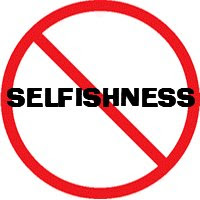

































































































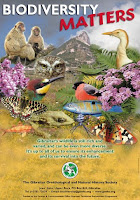

























































































.jpg)





































































































